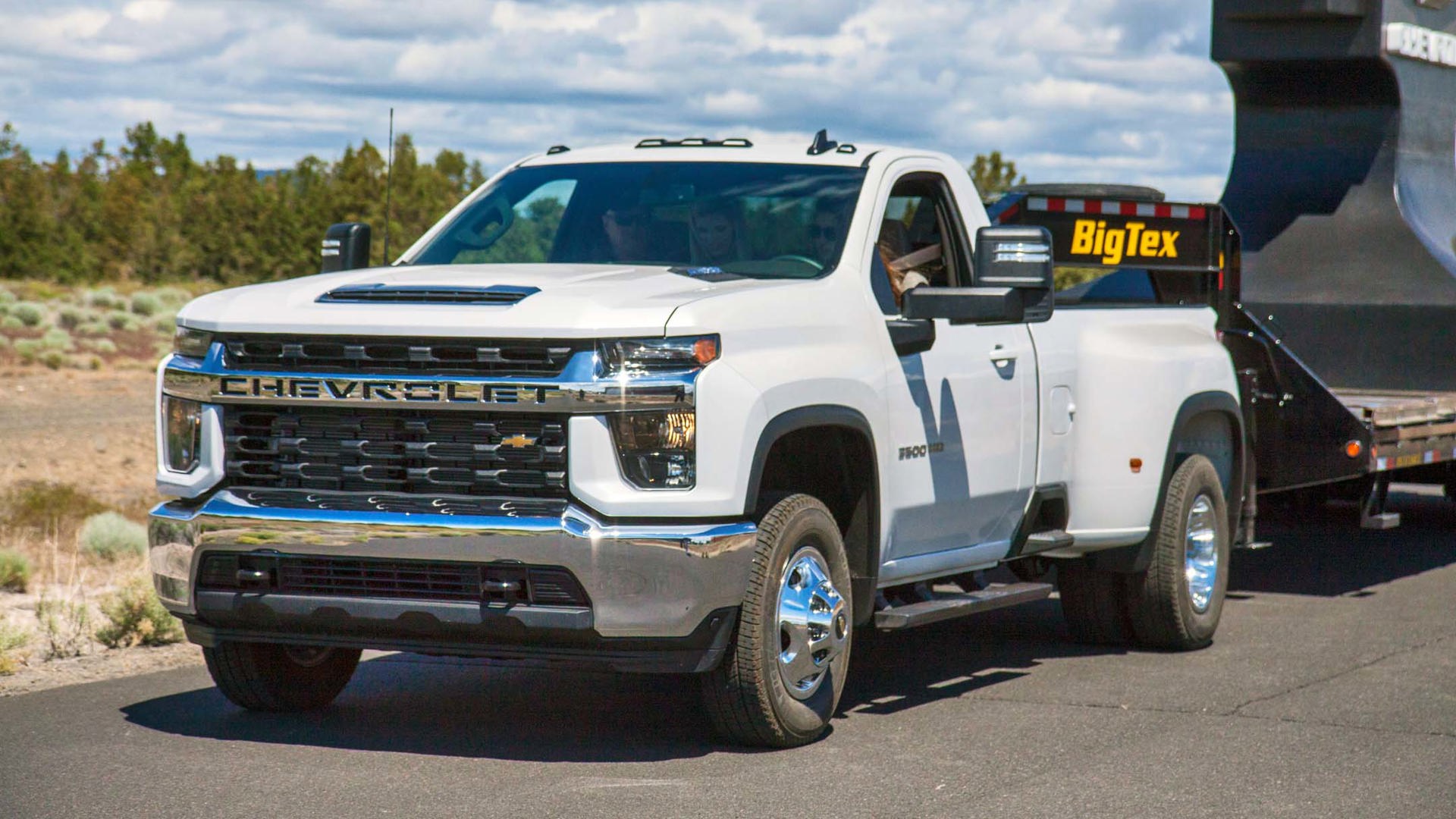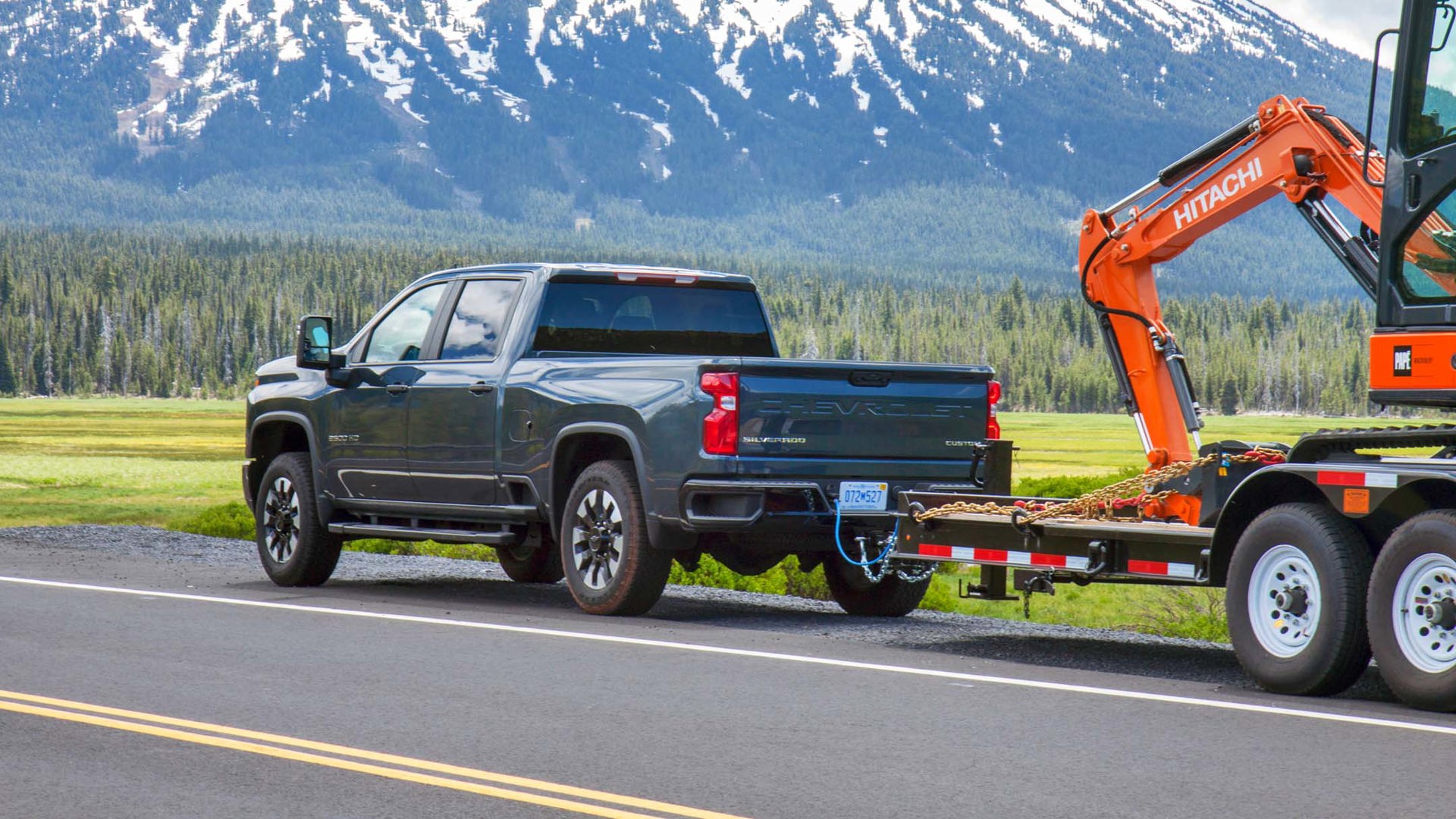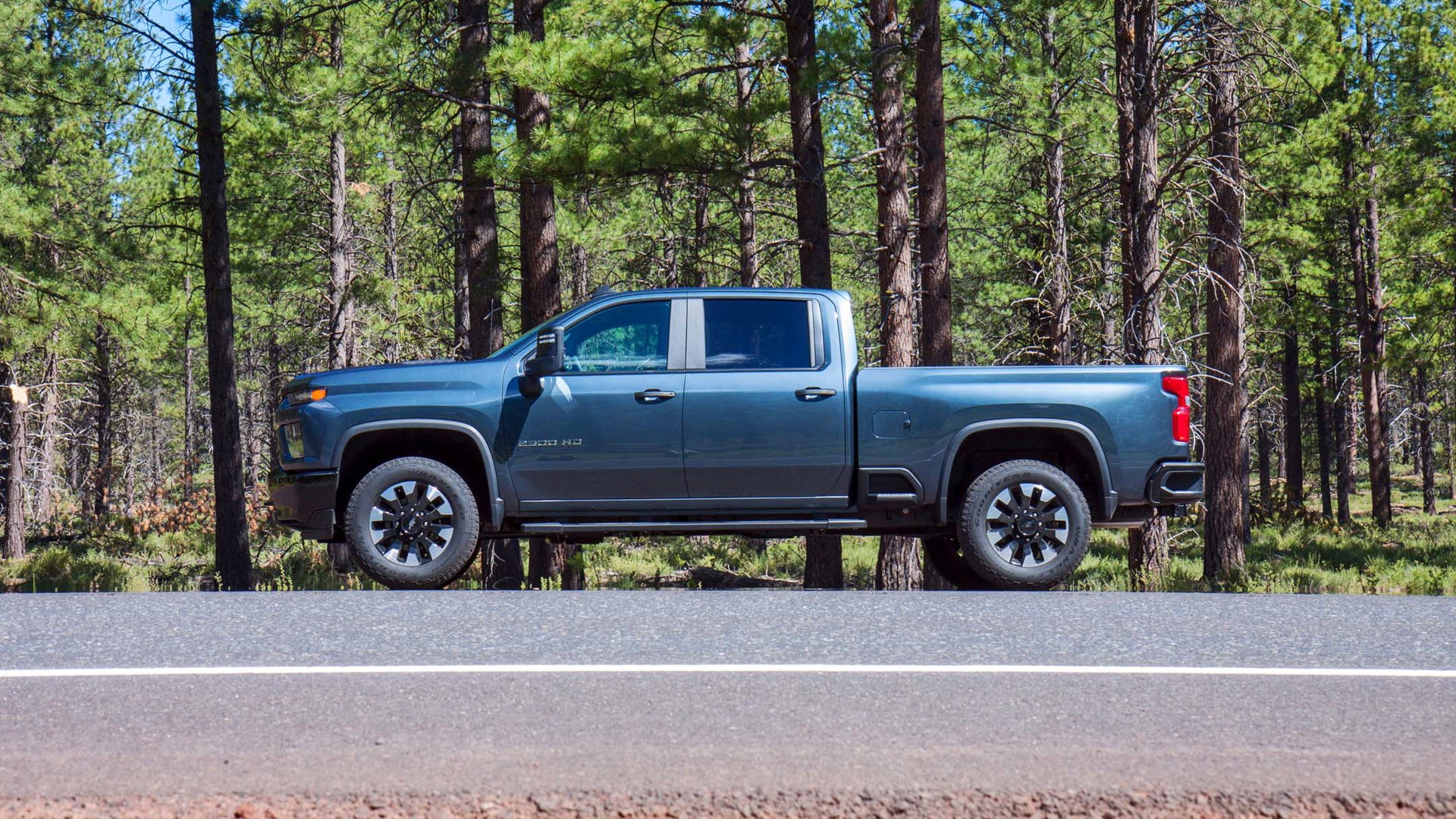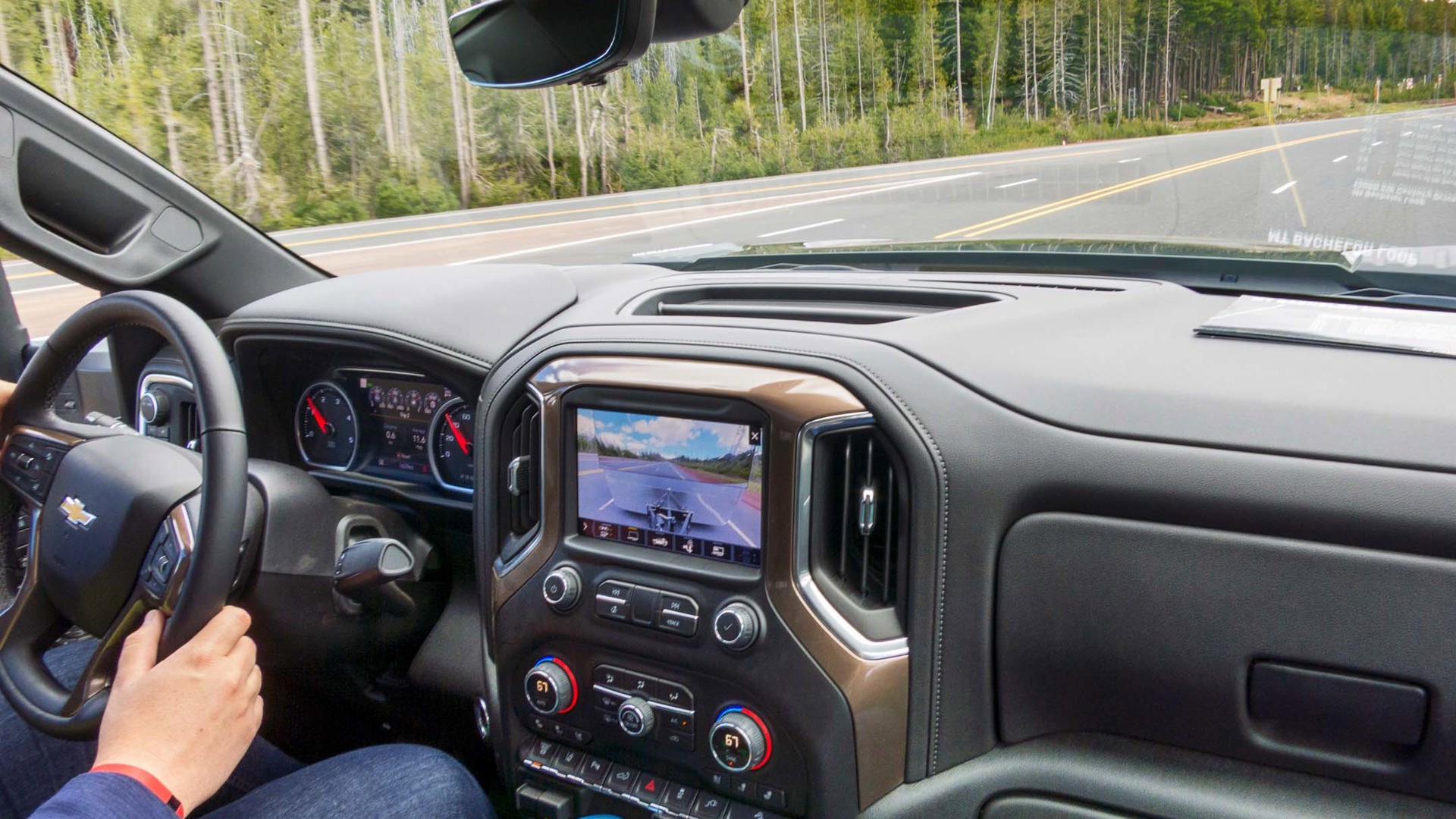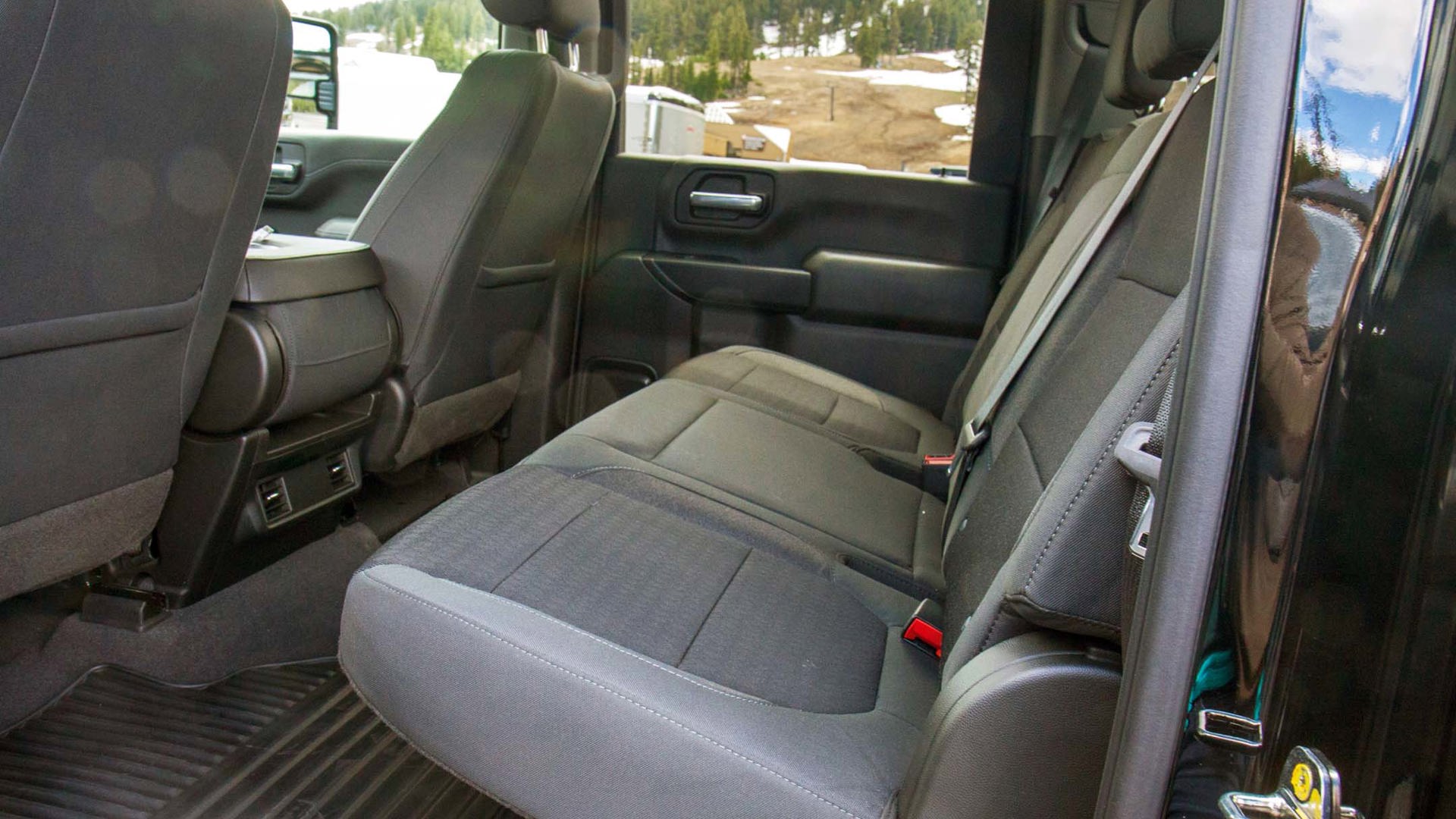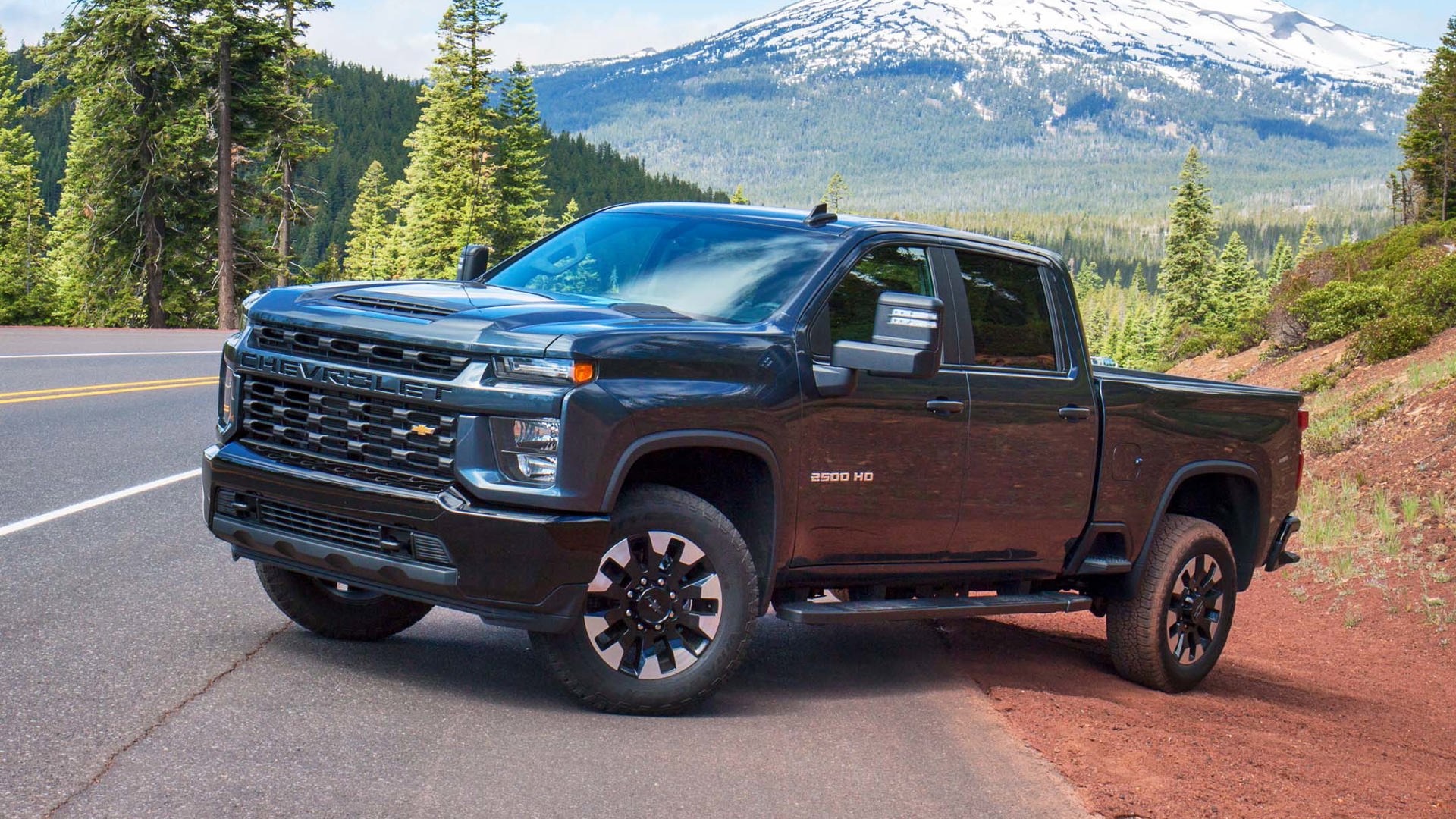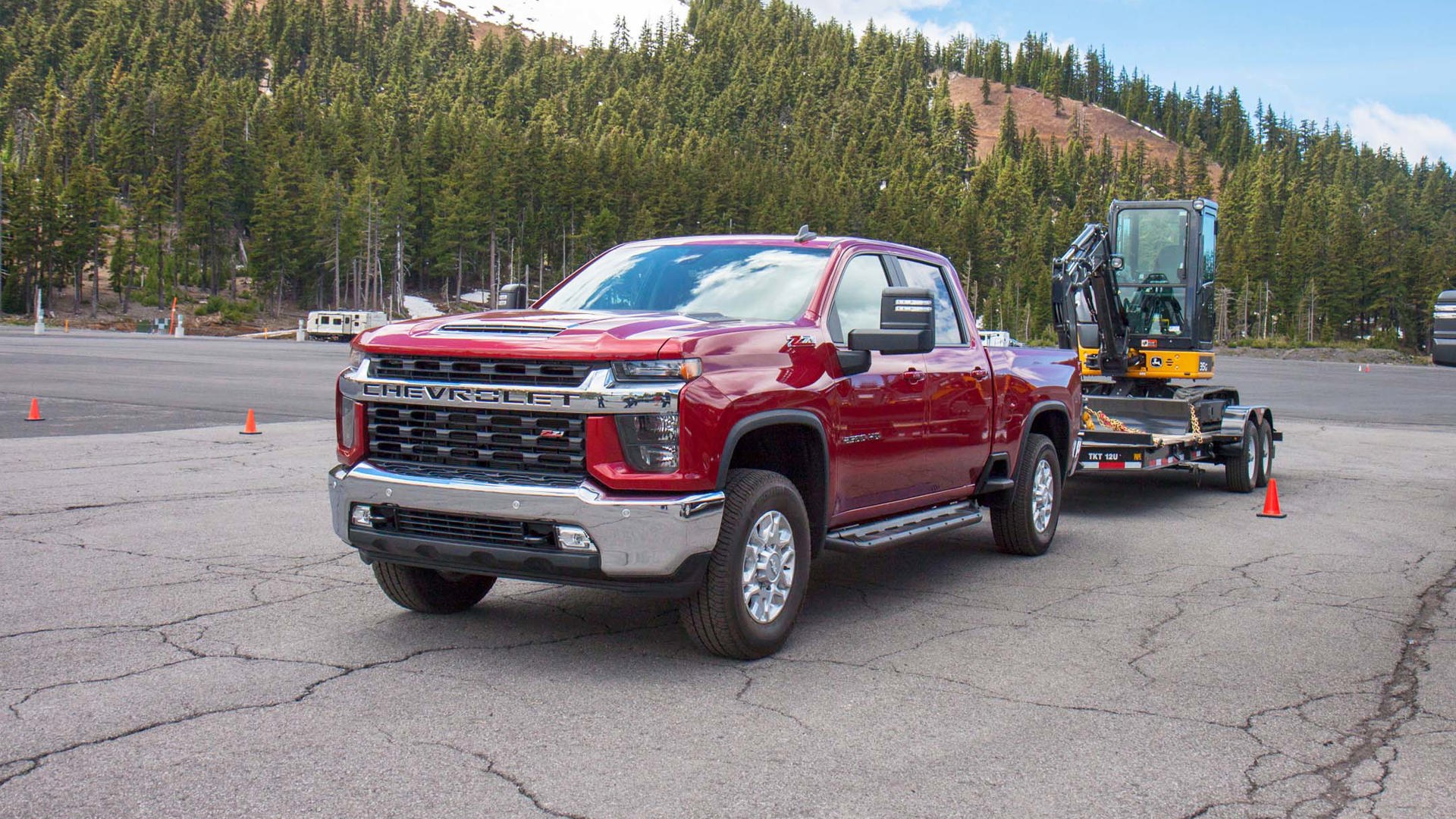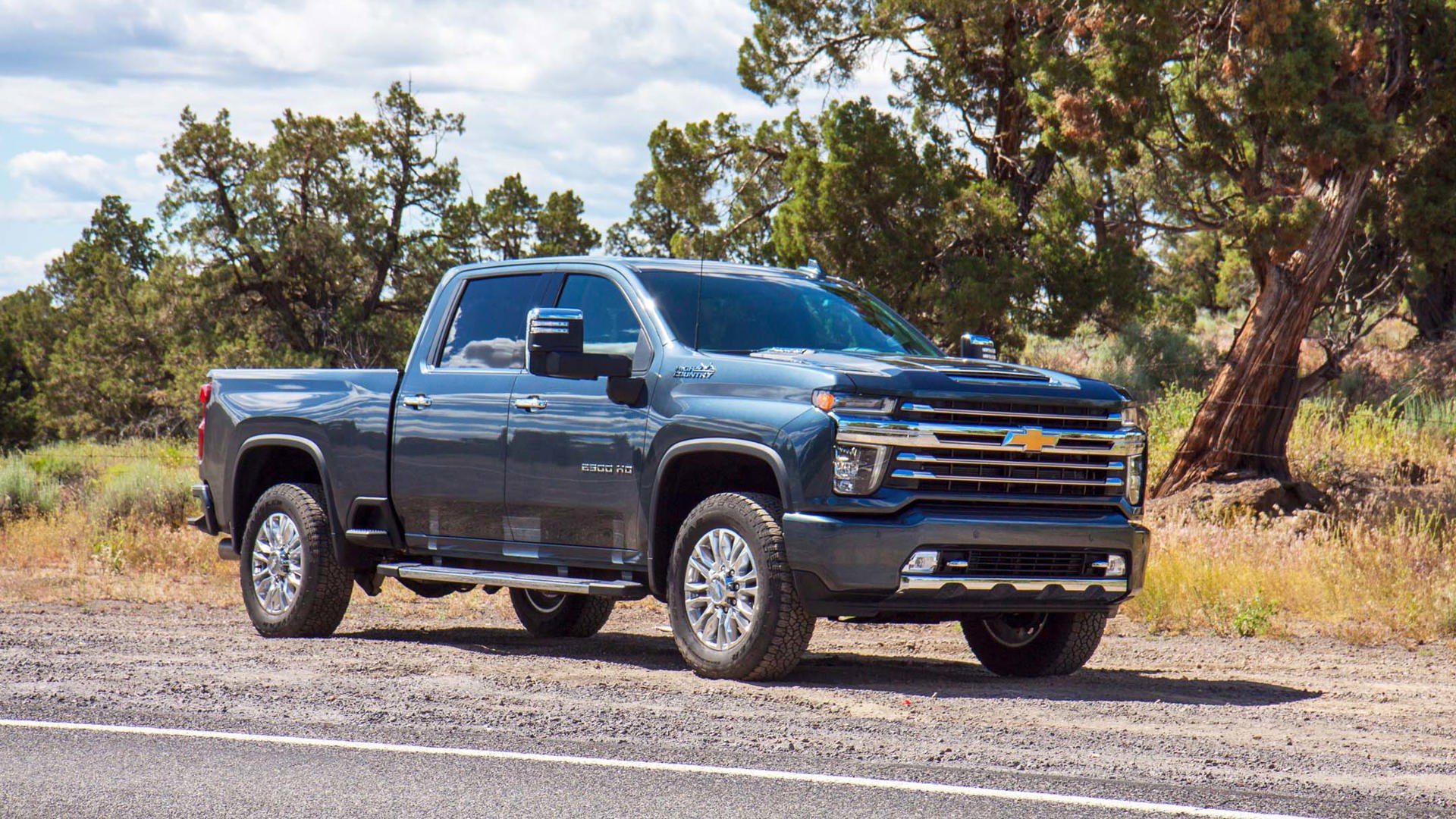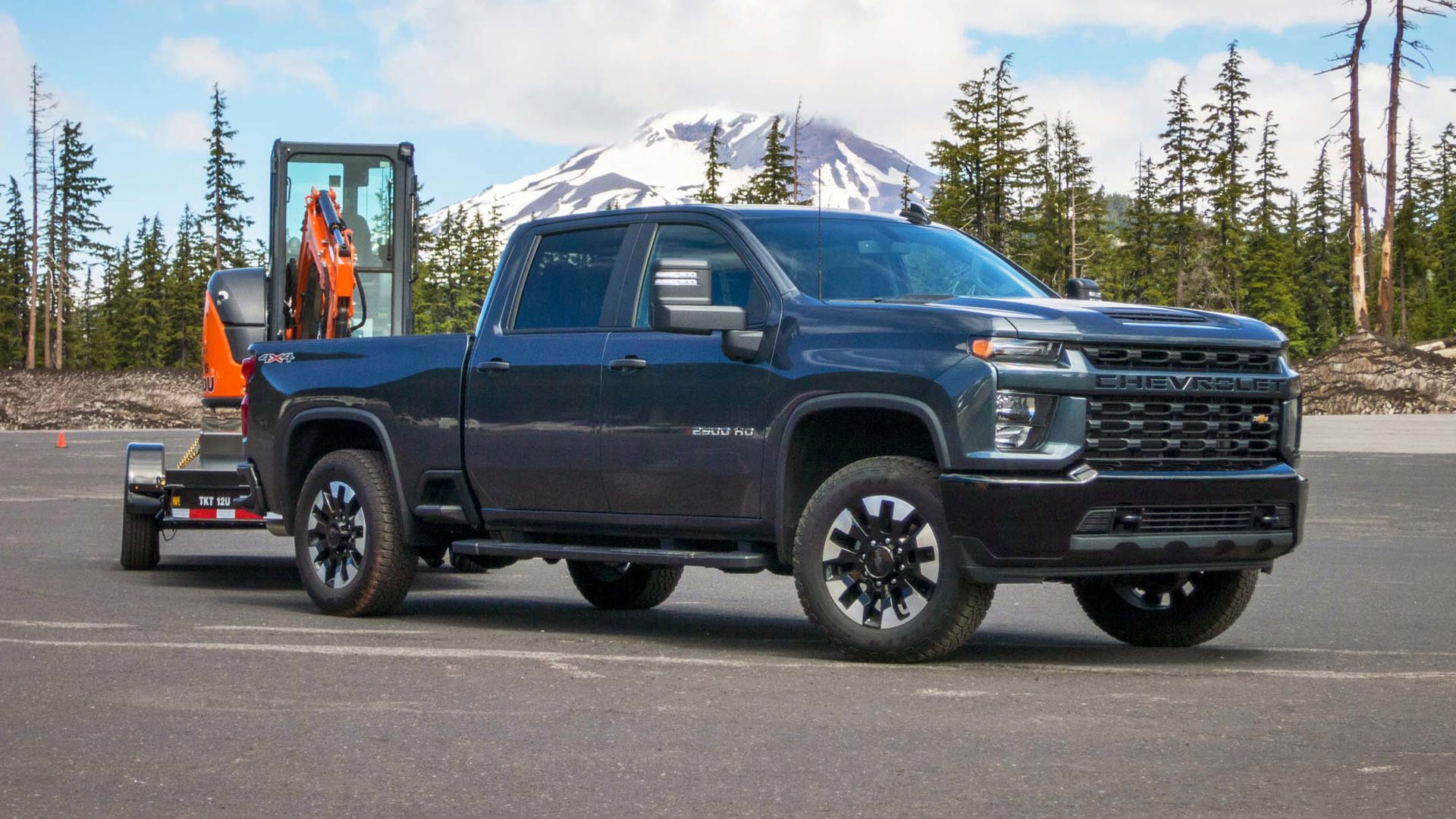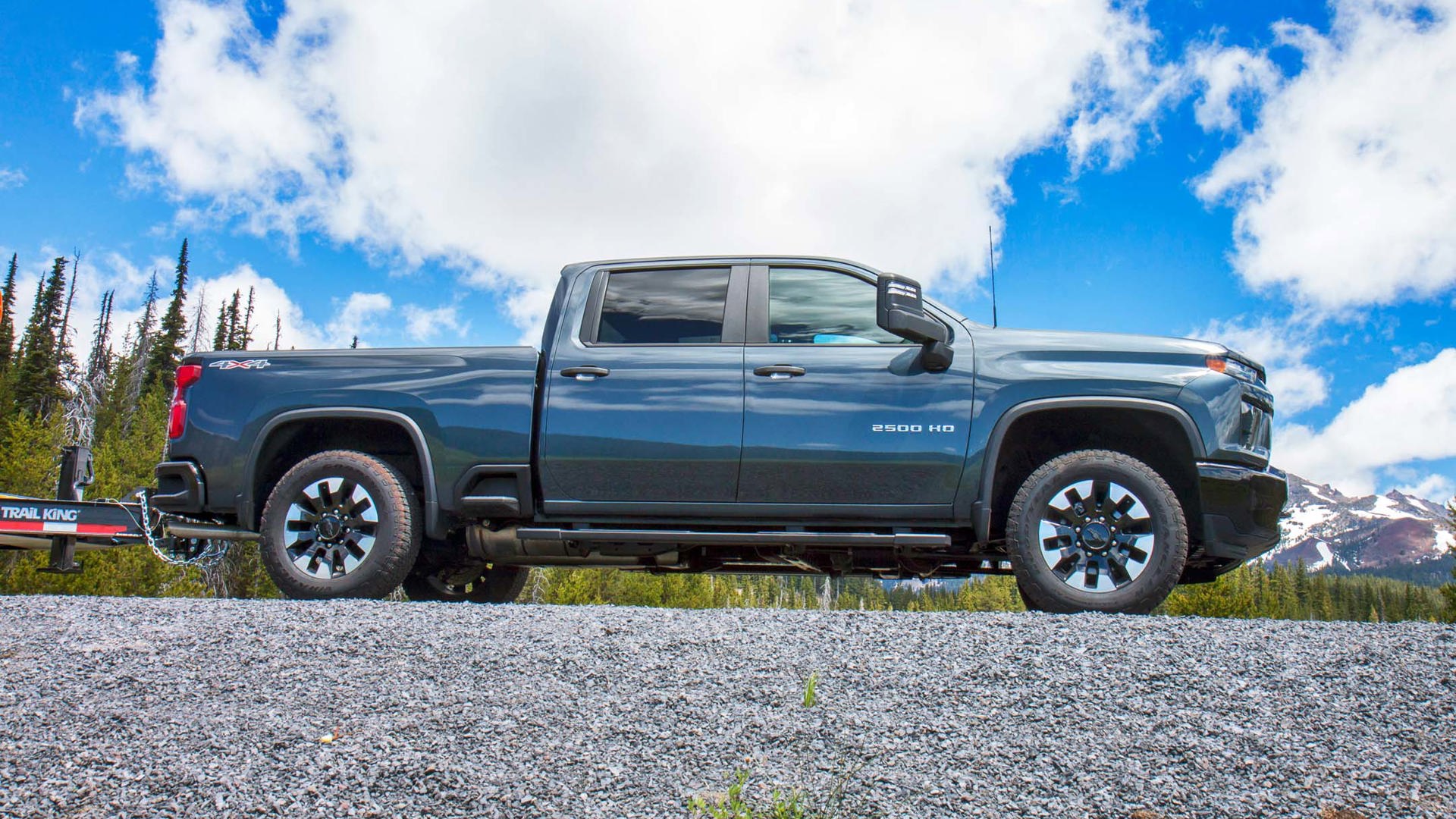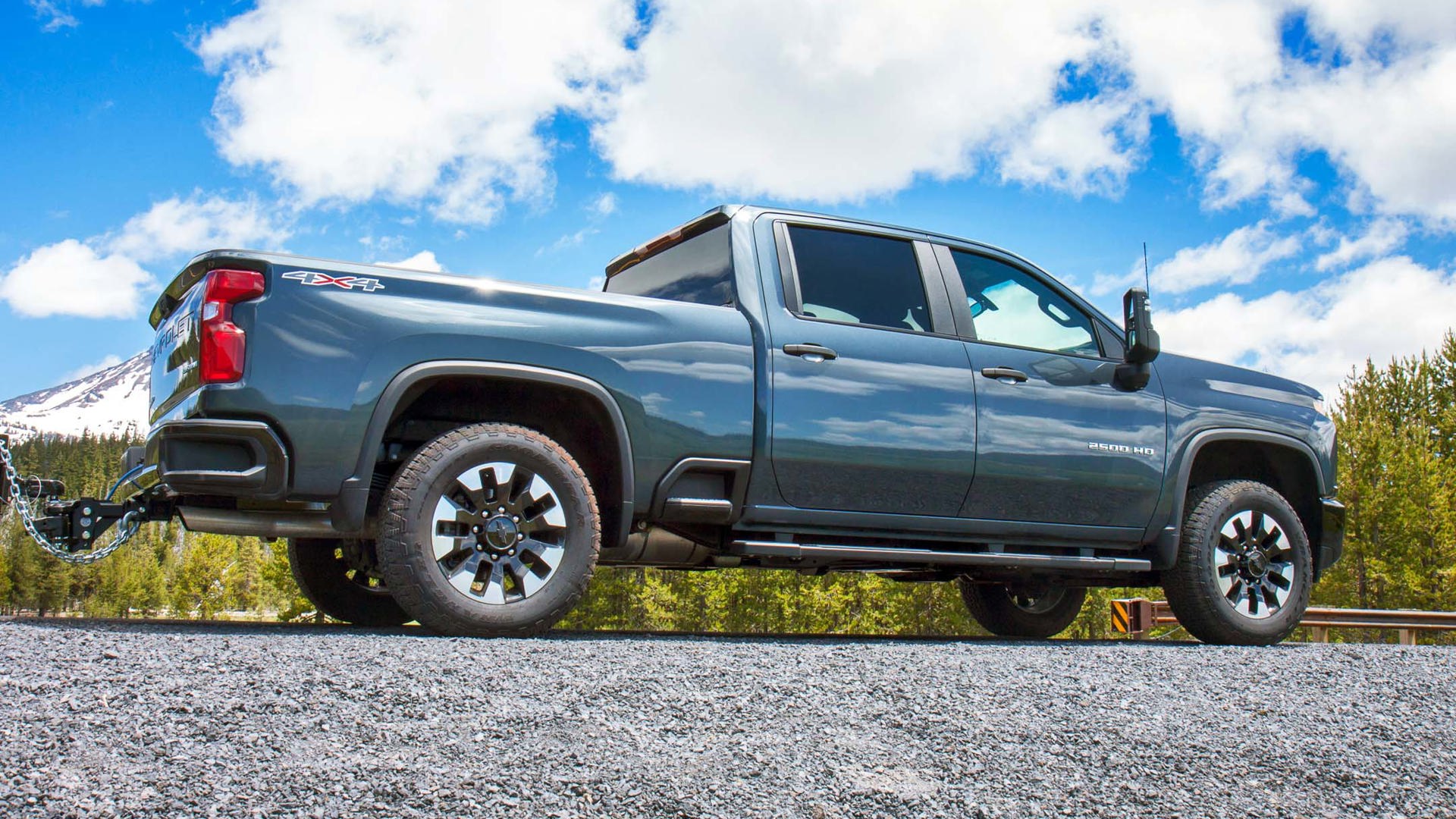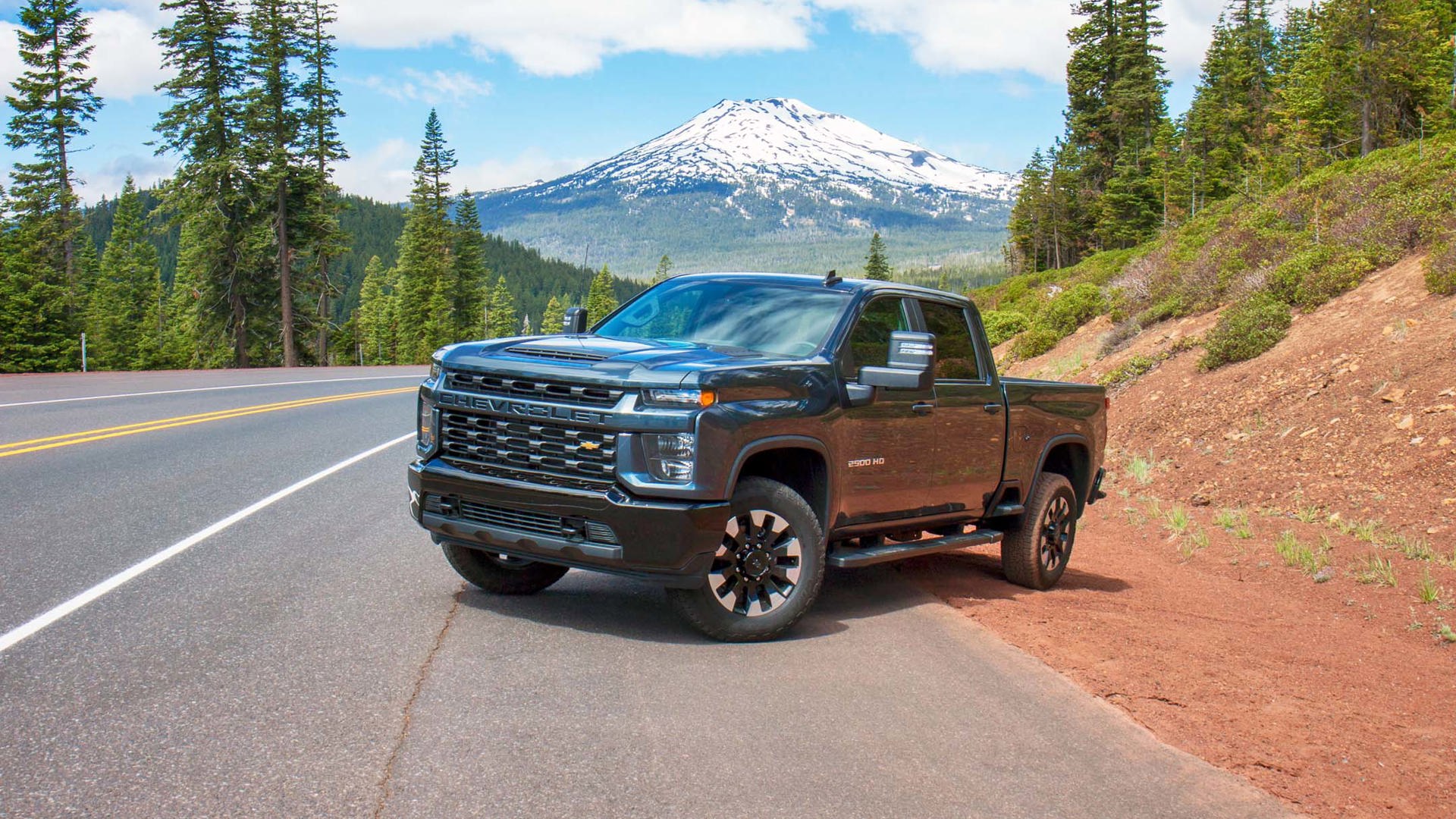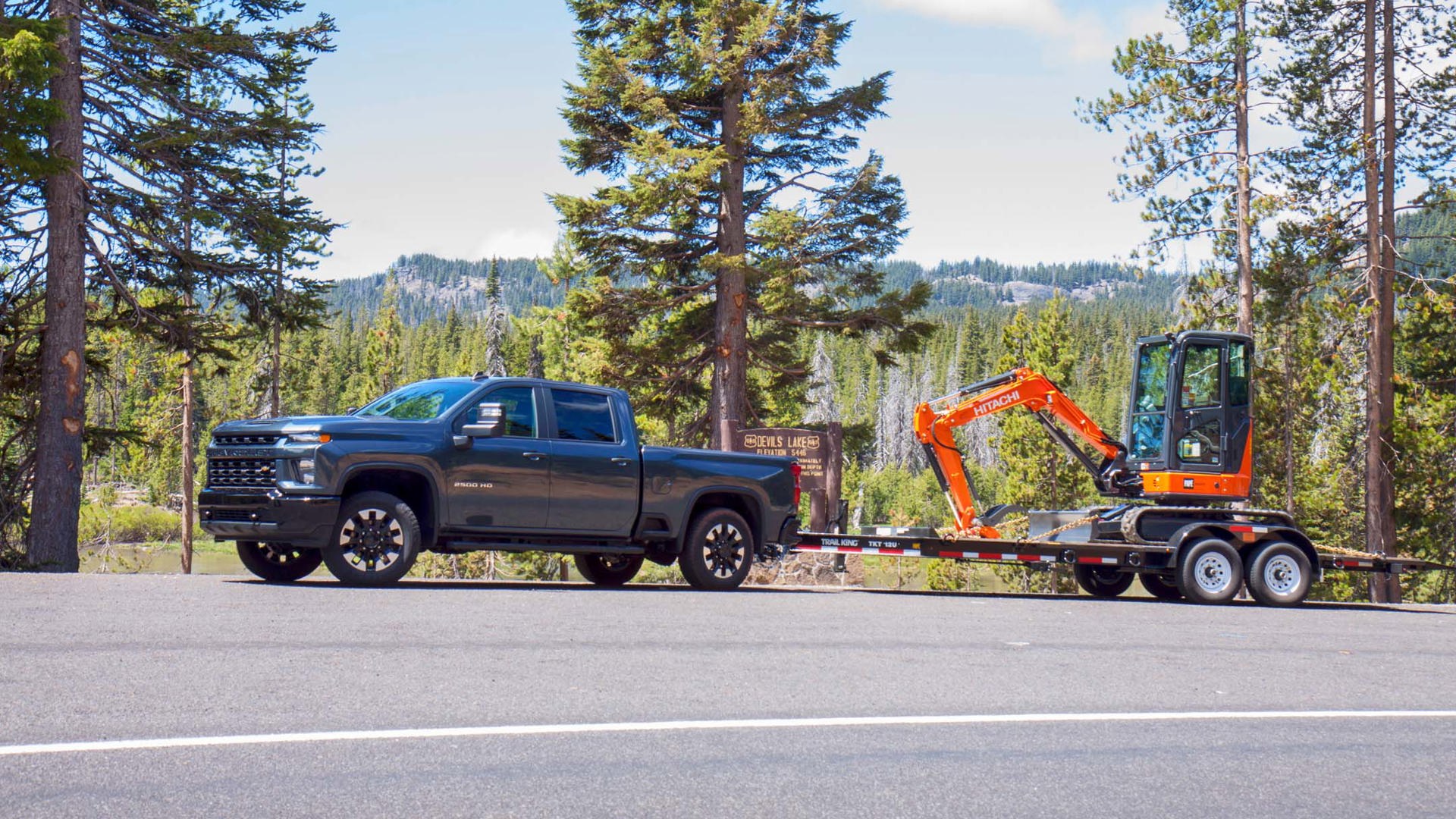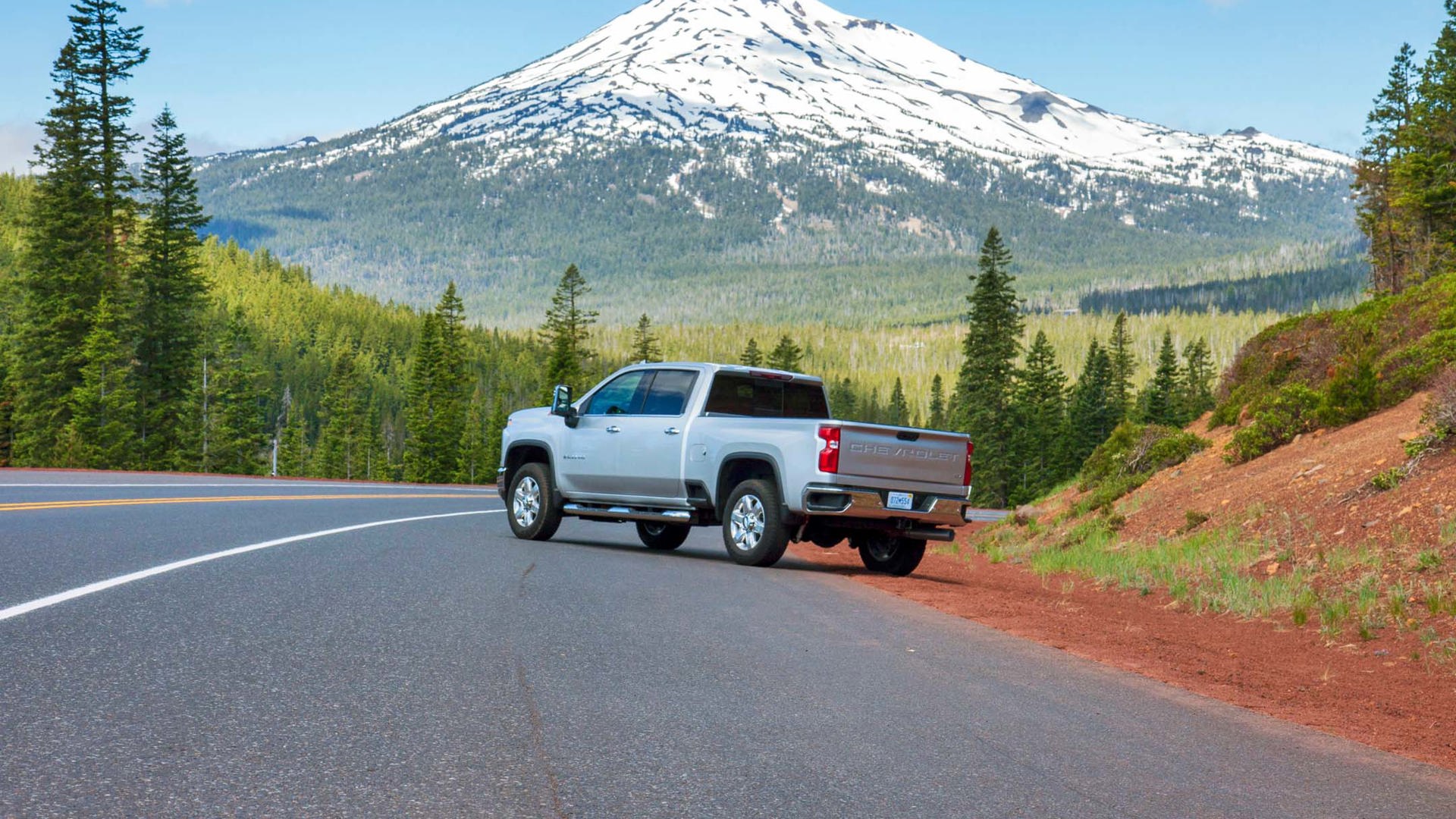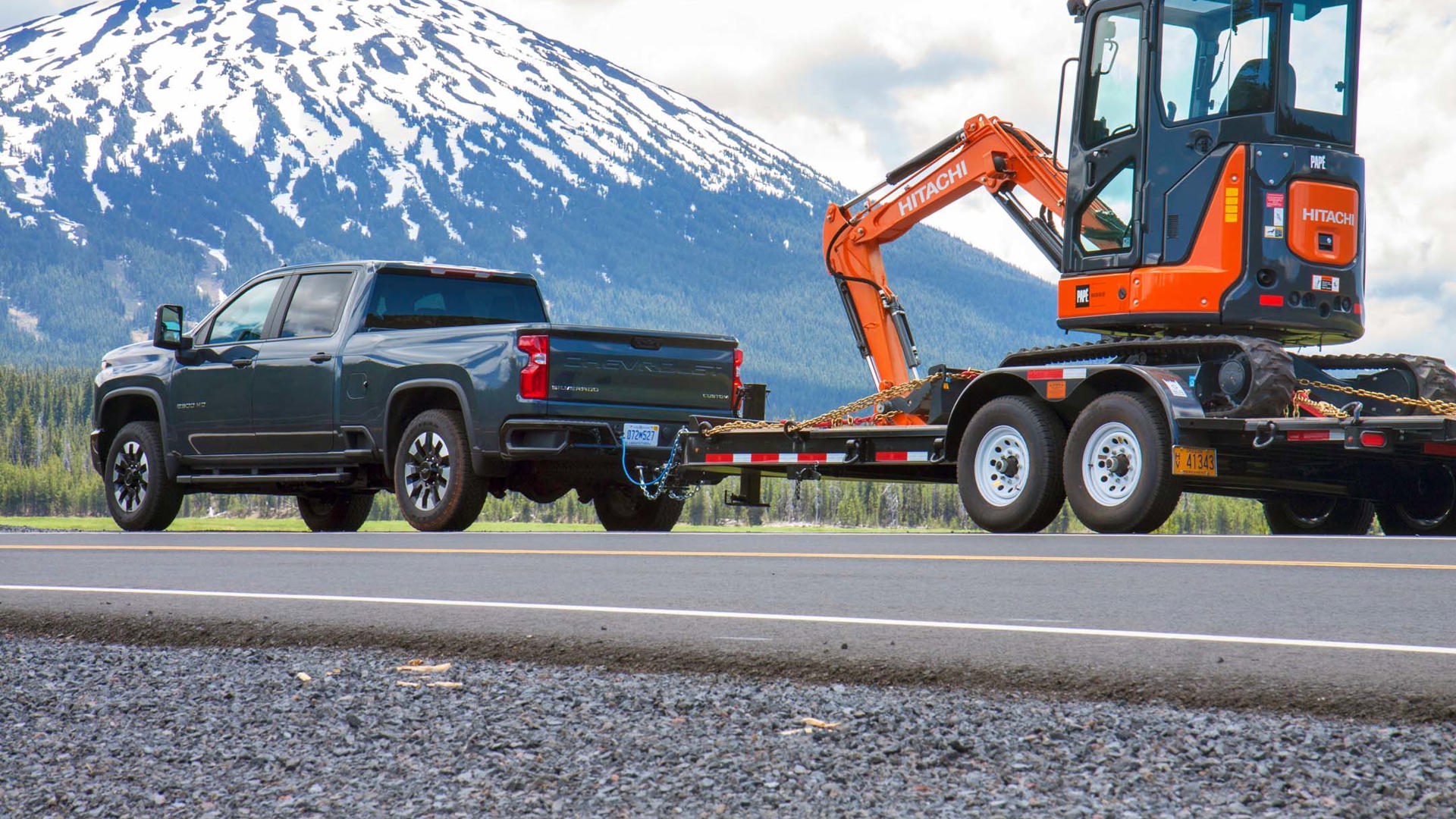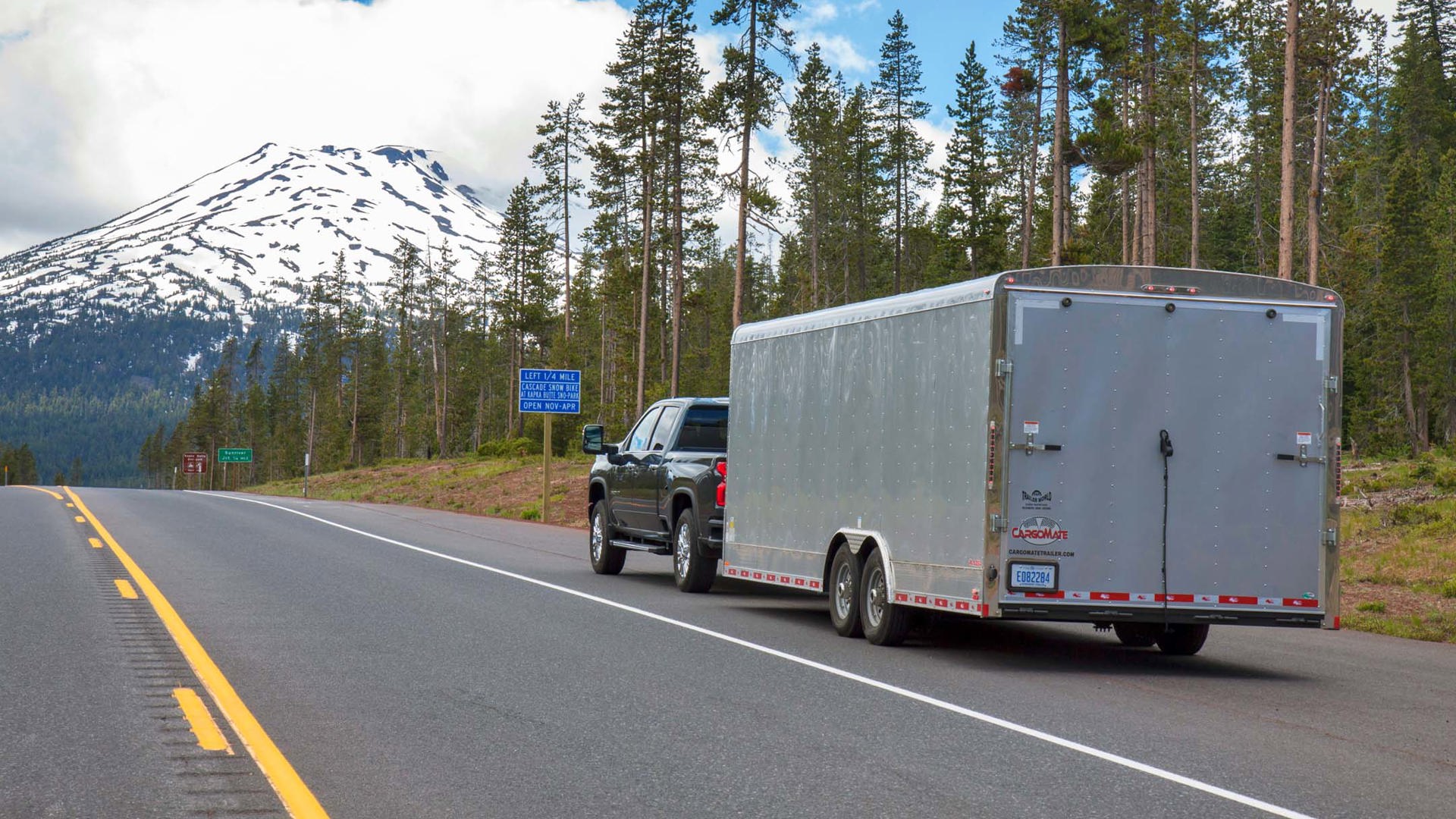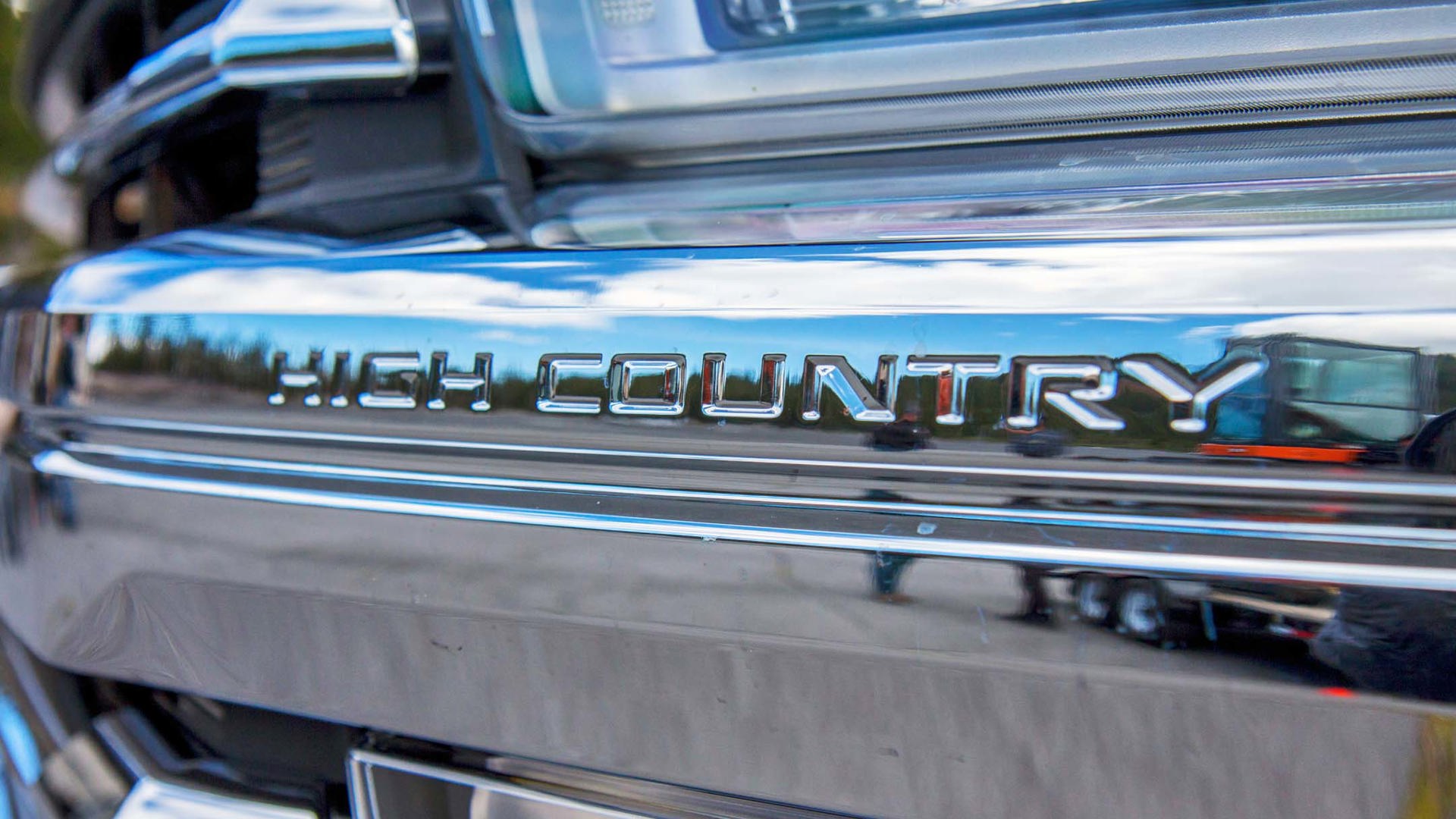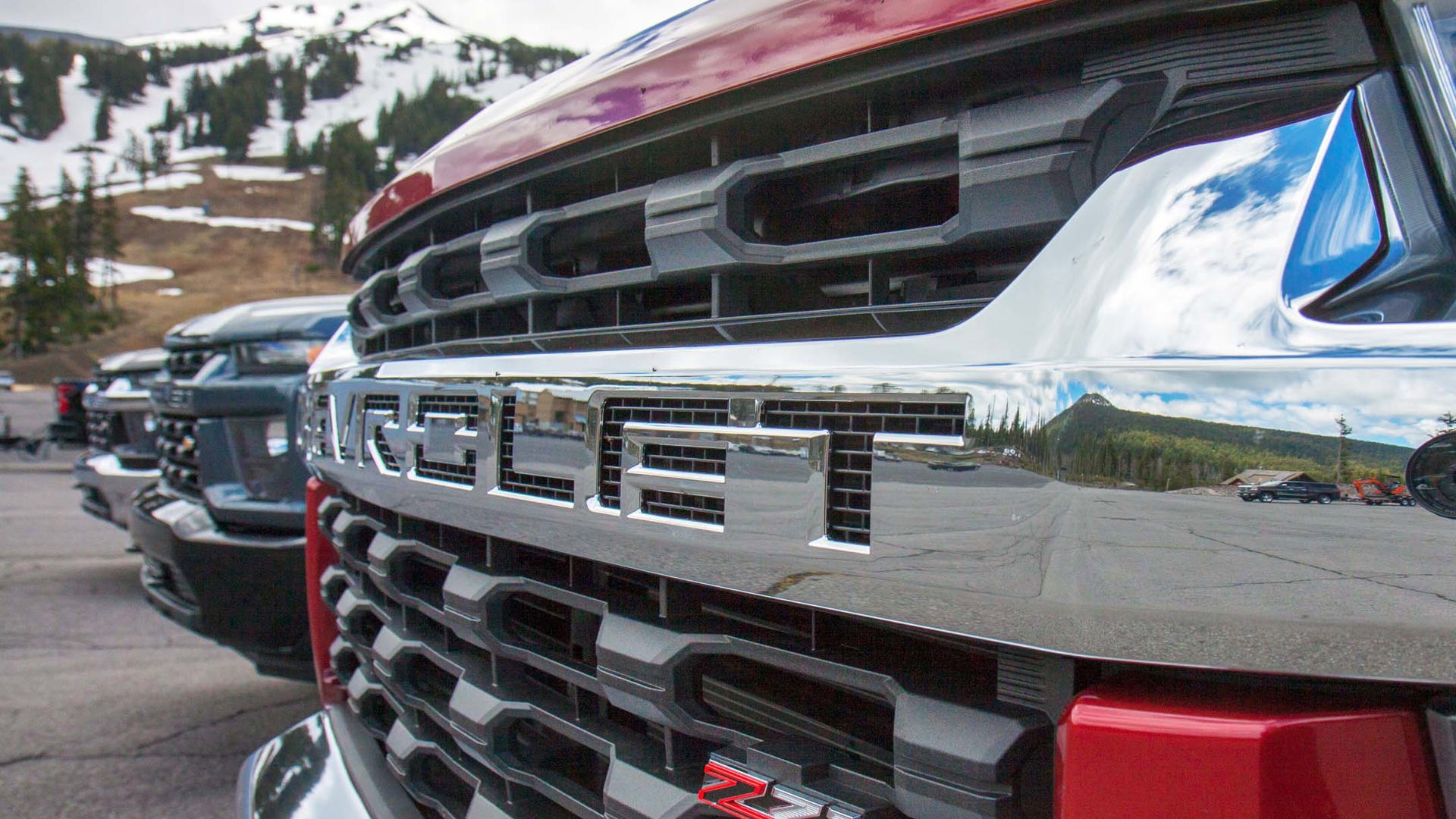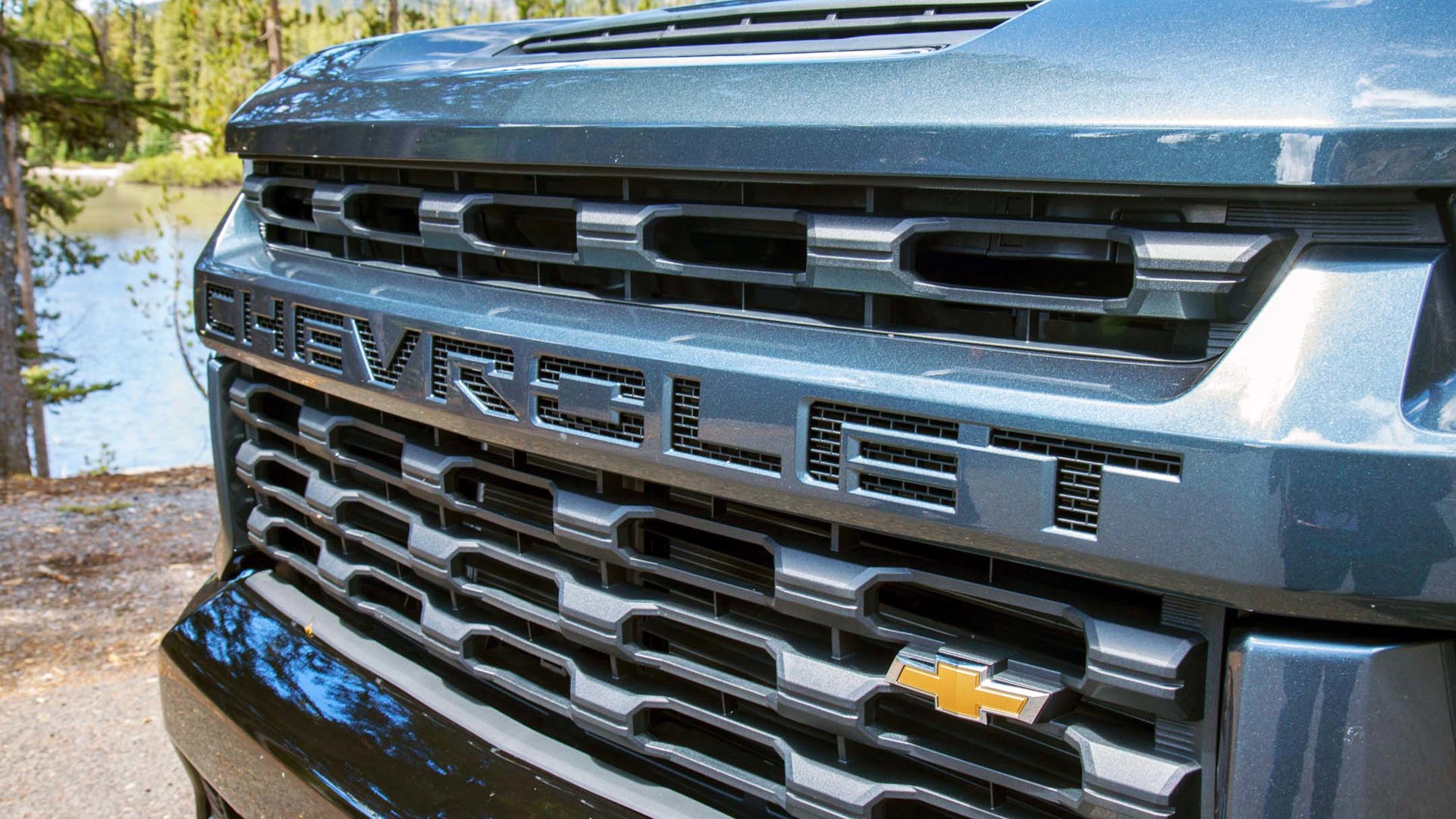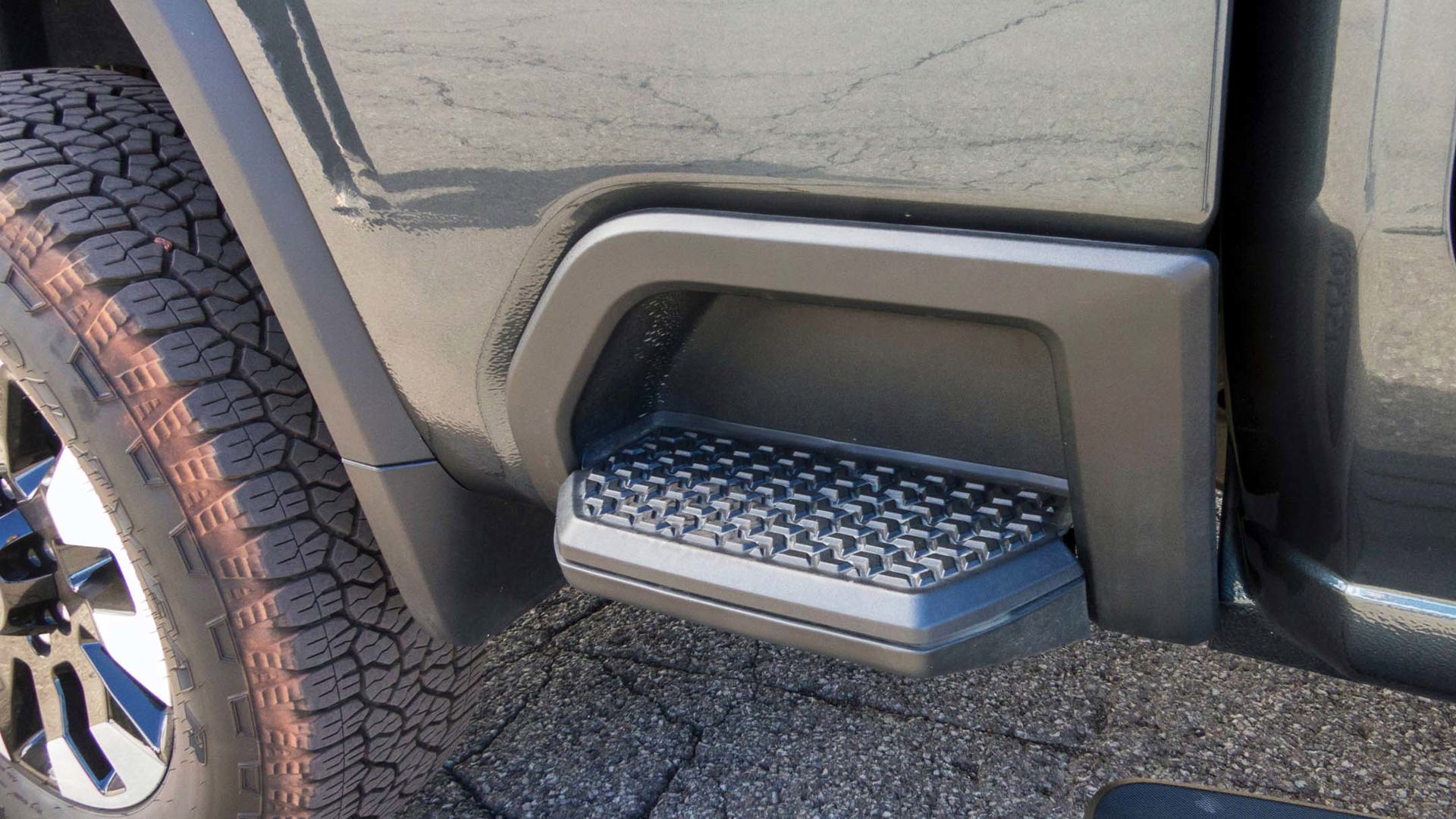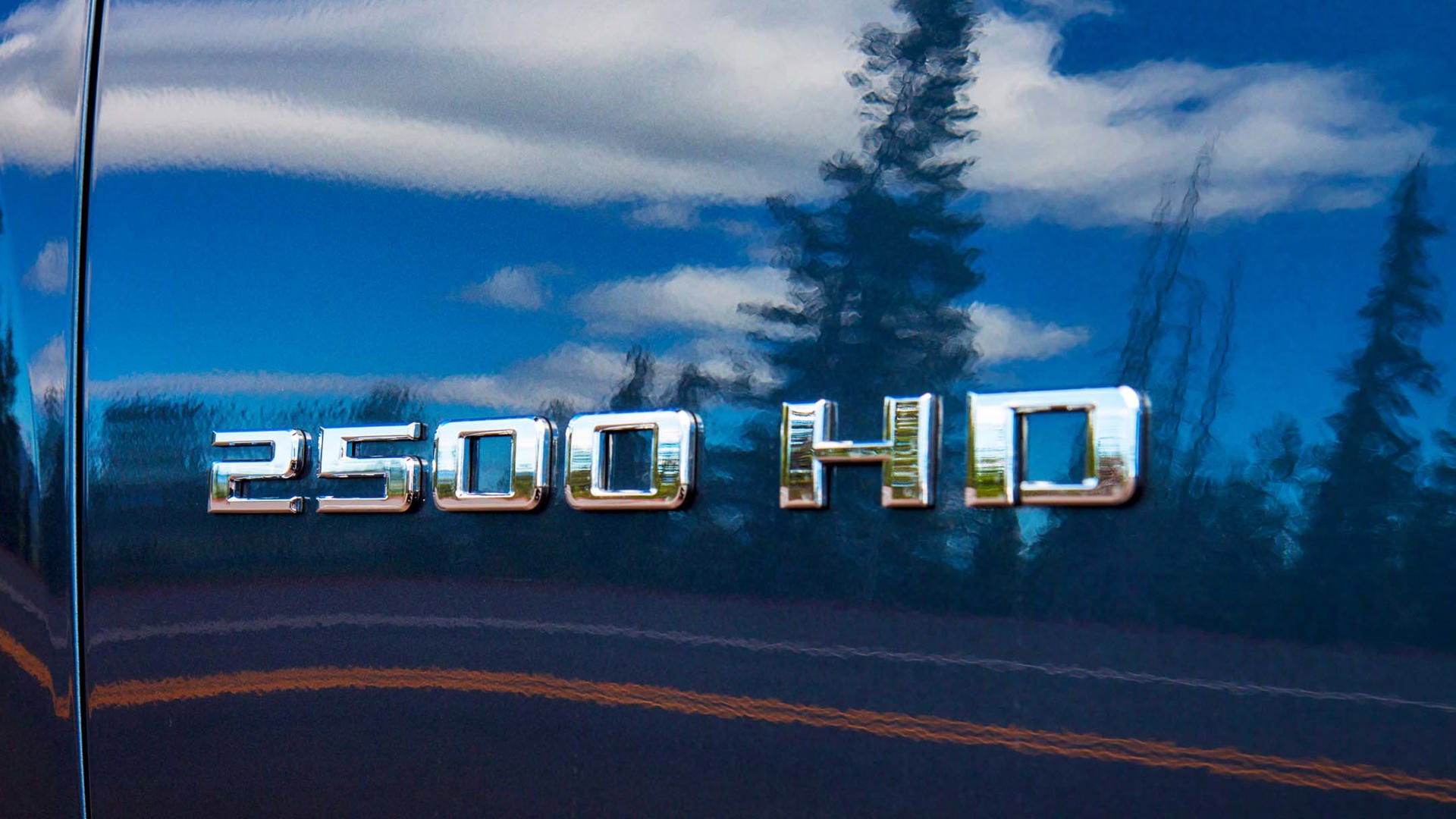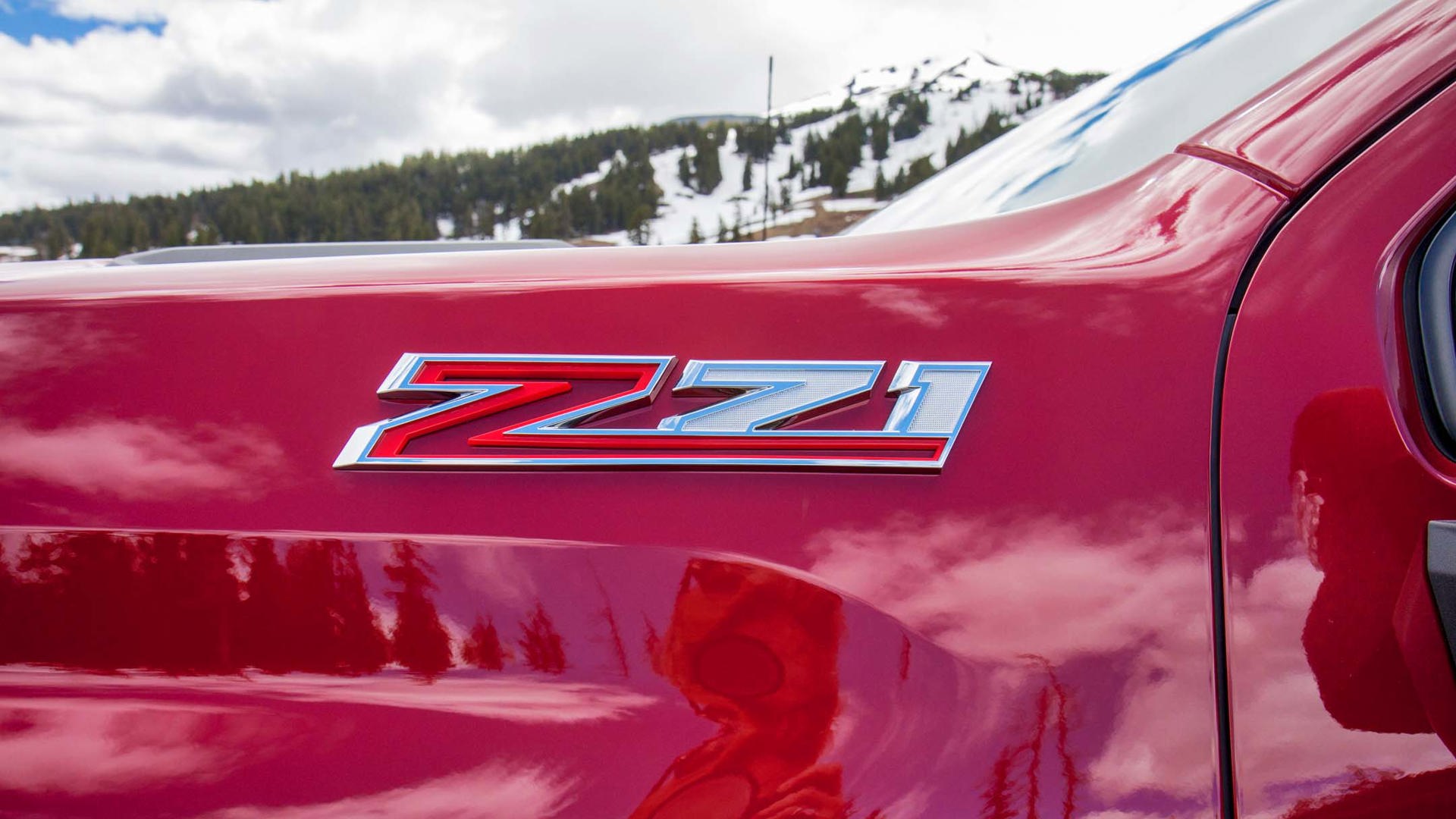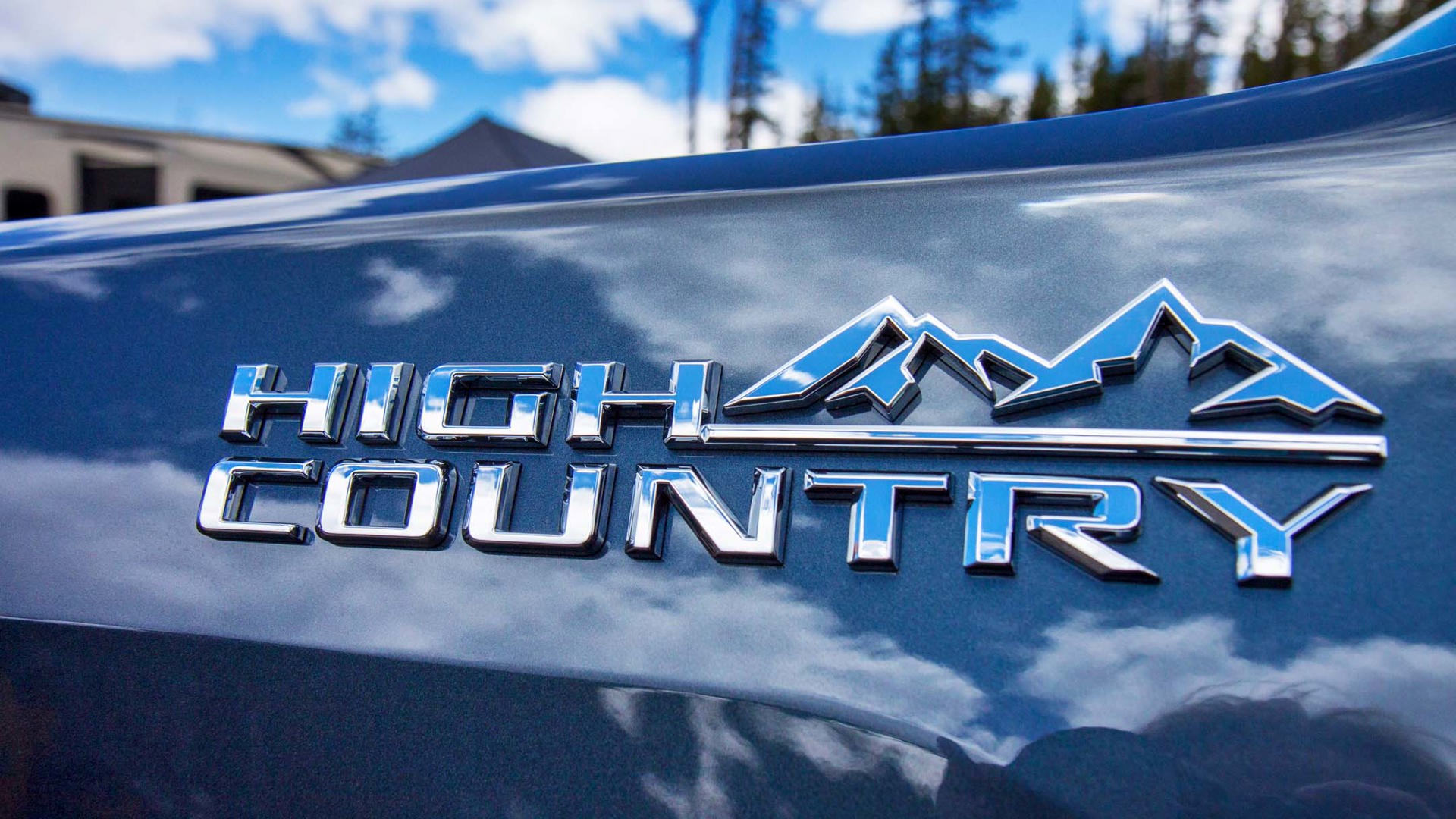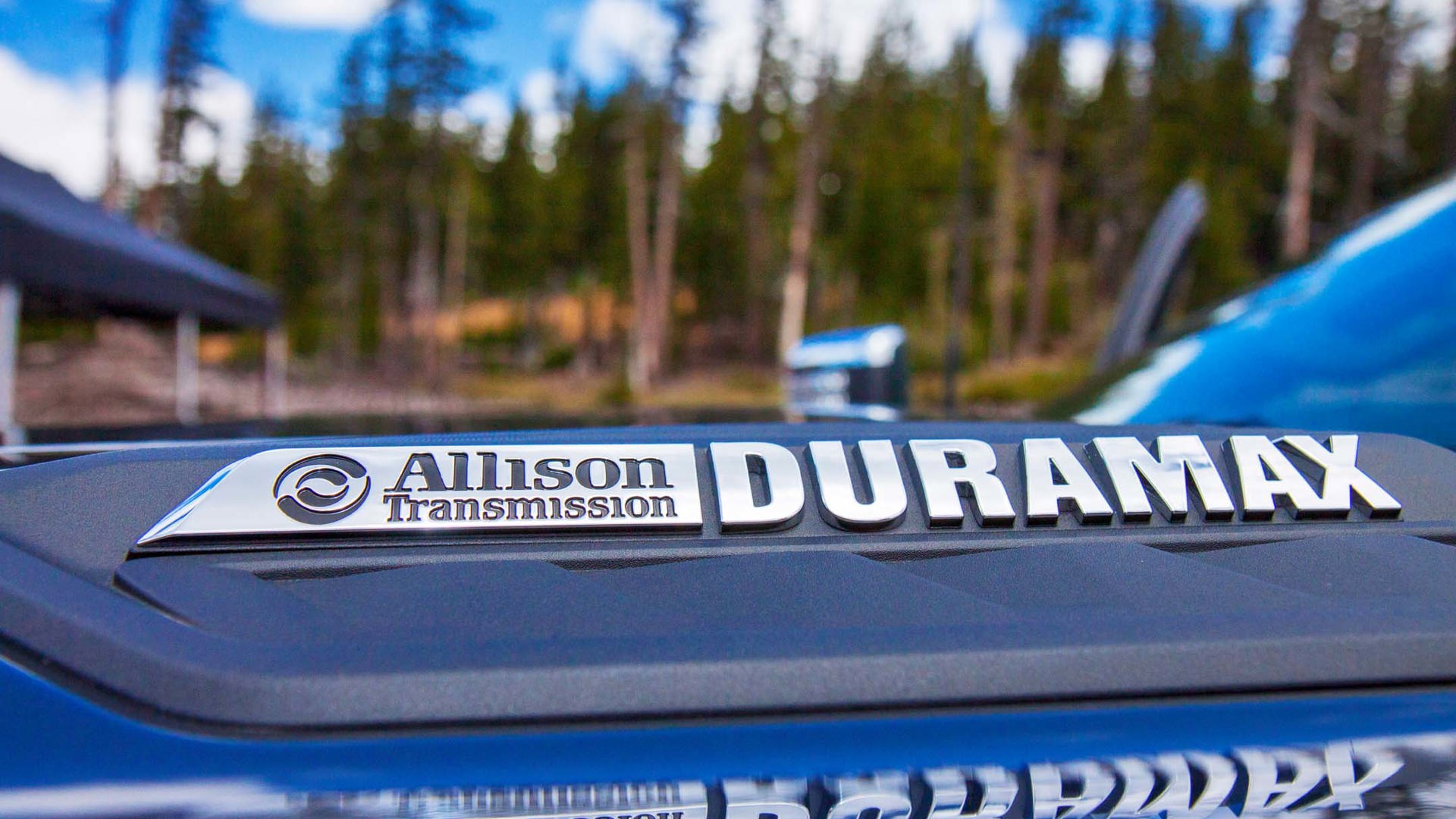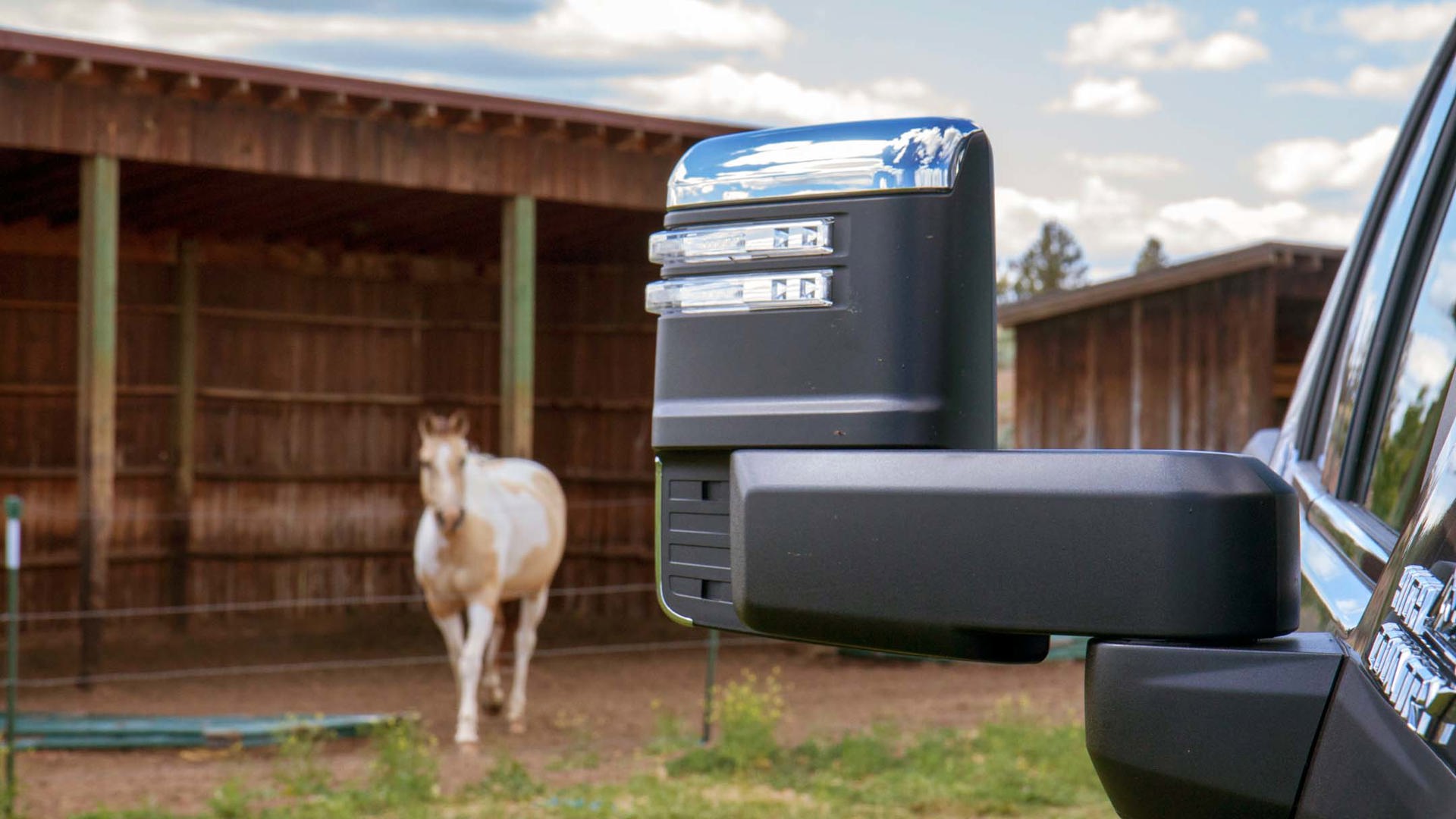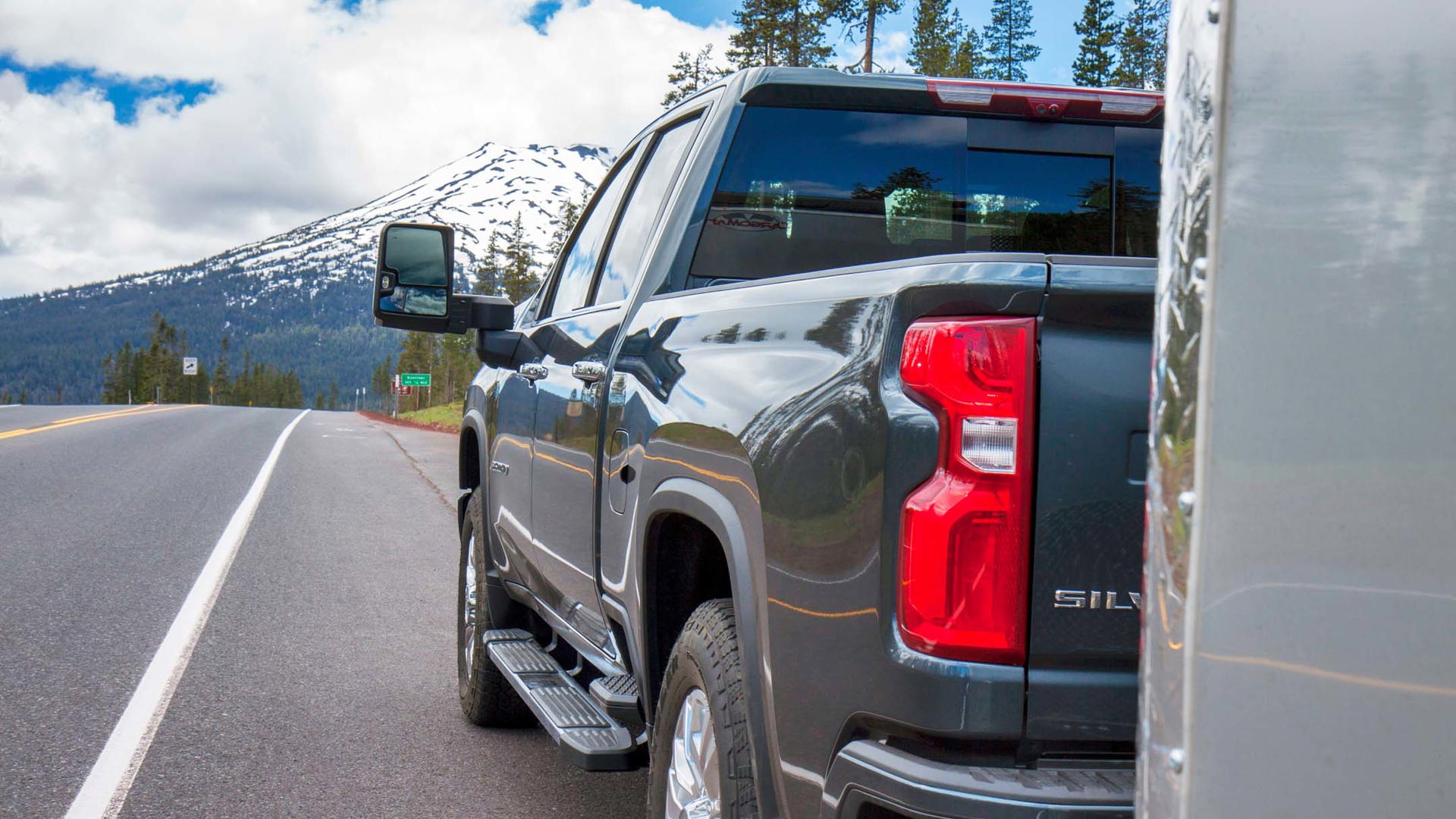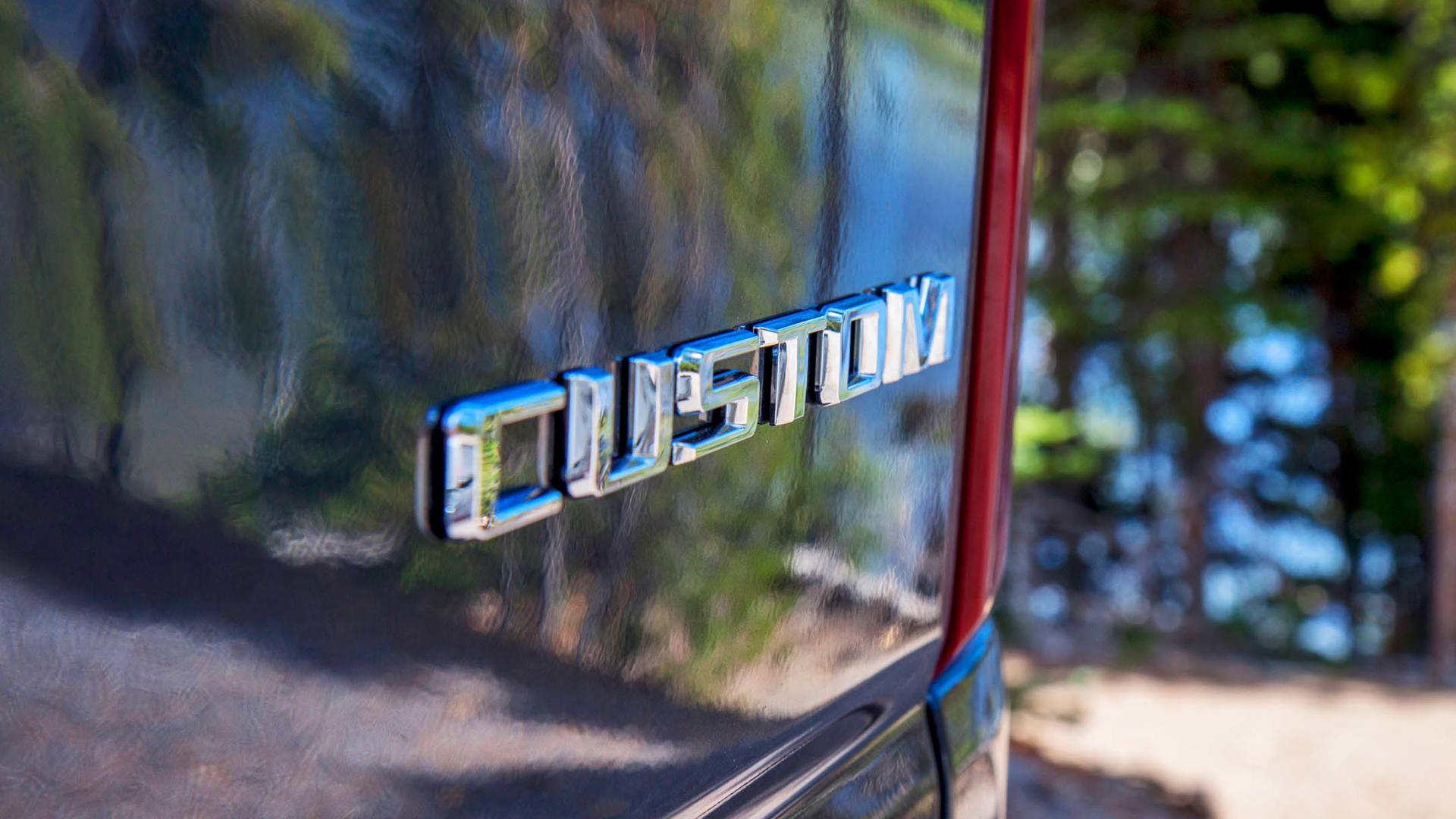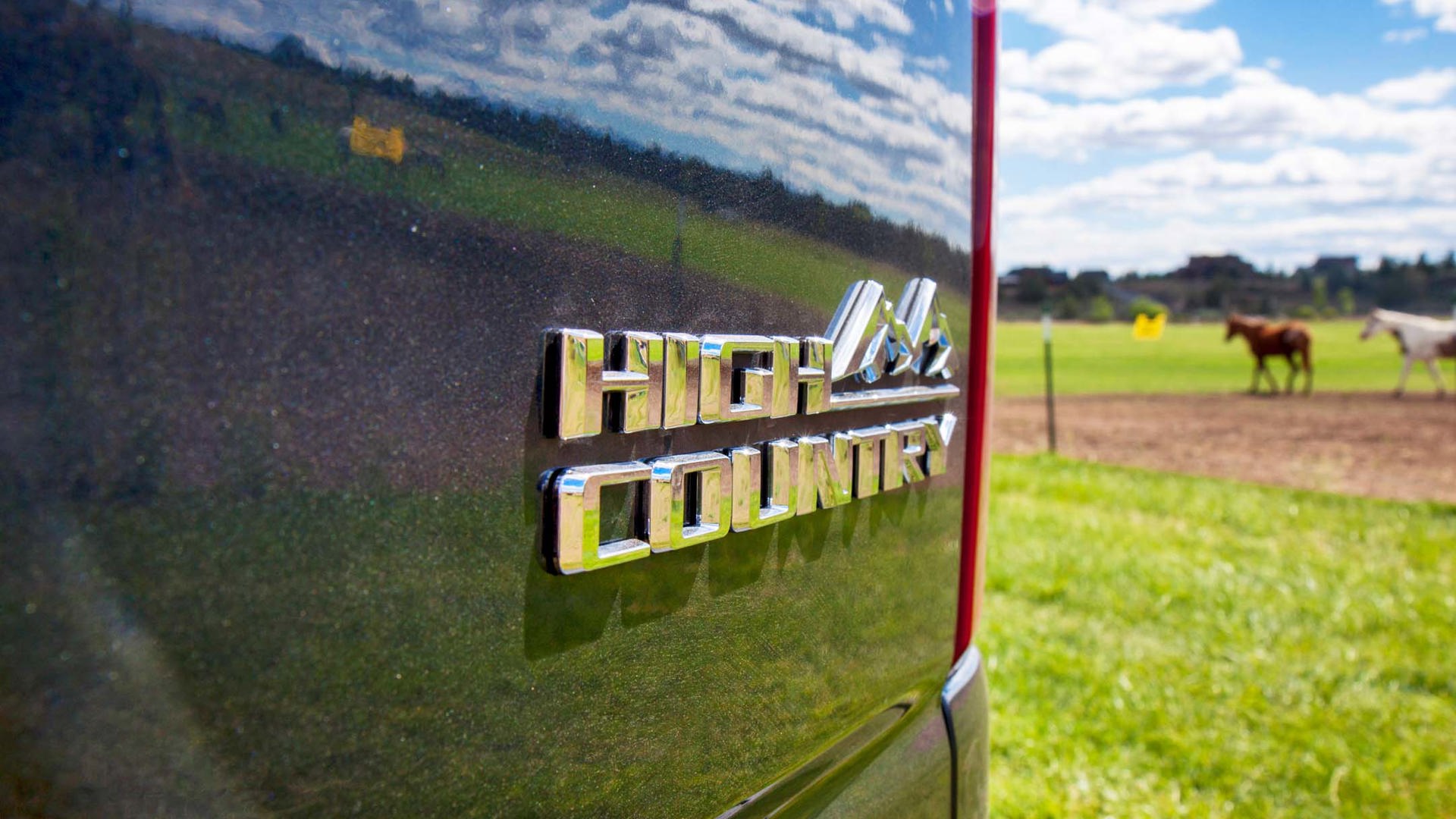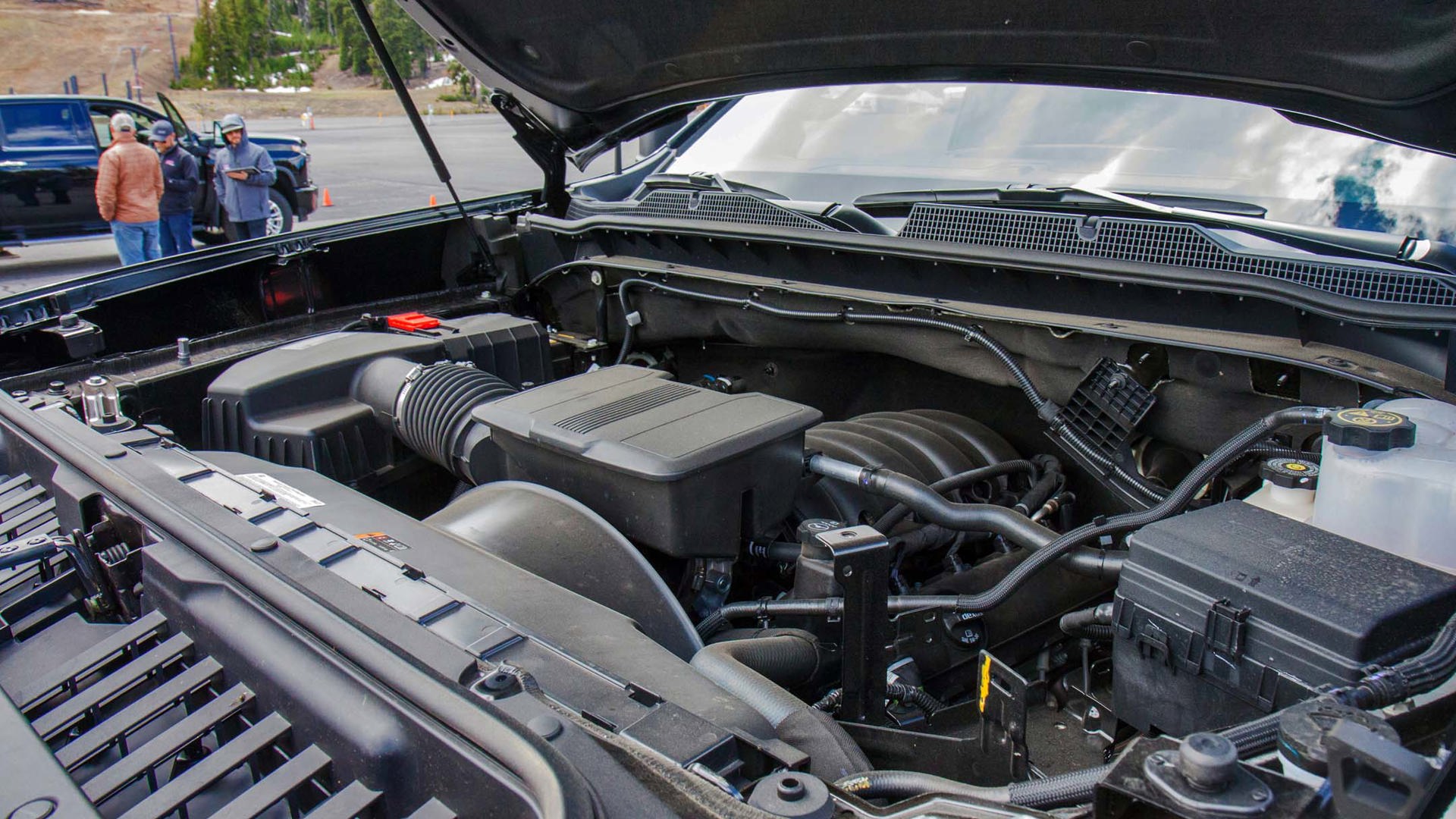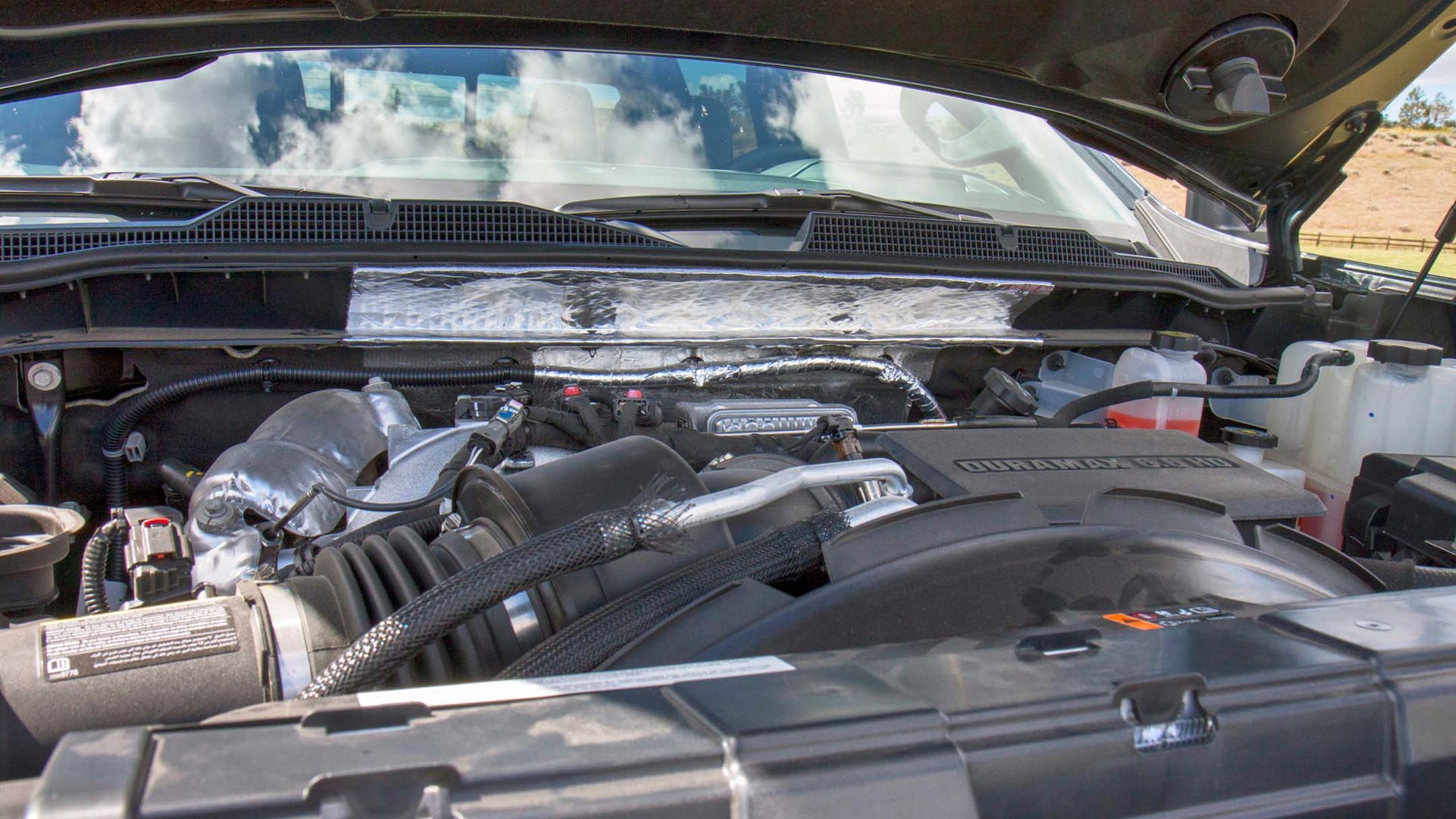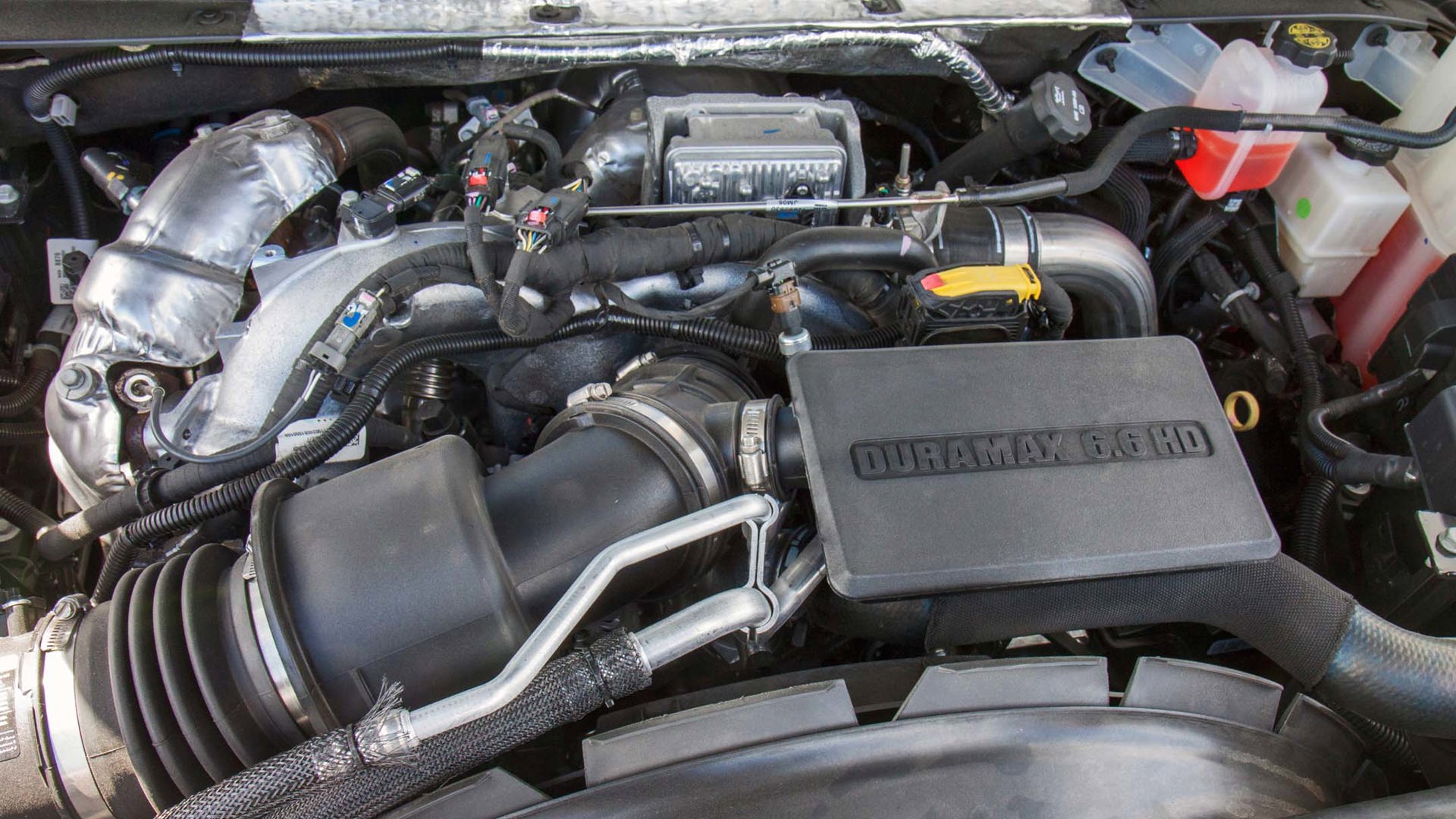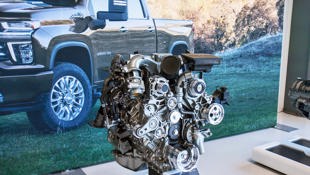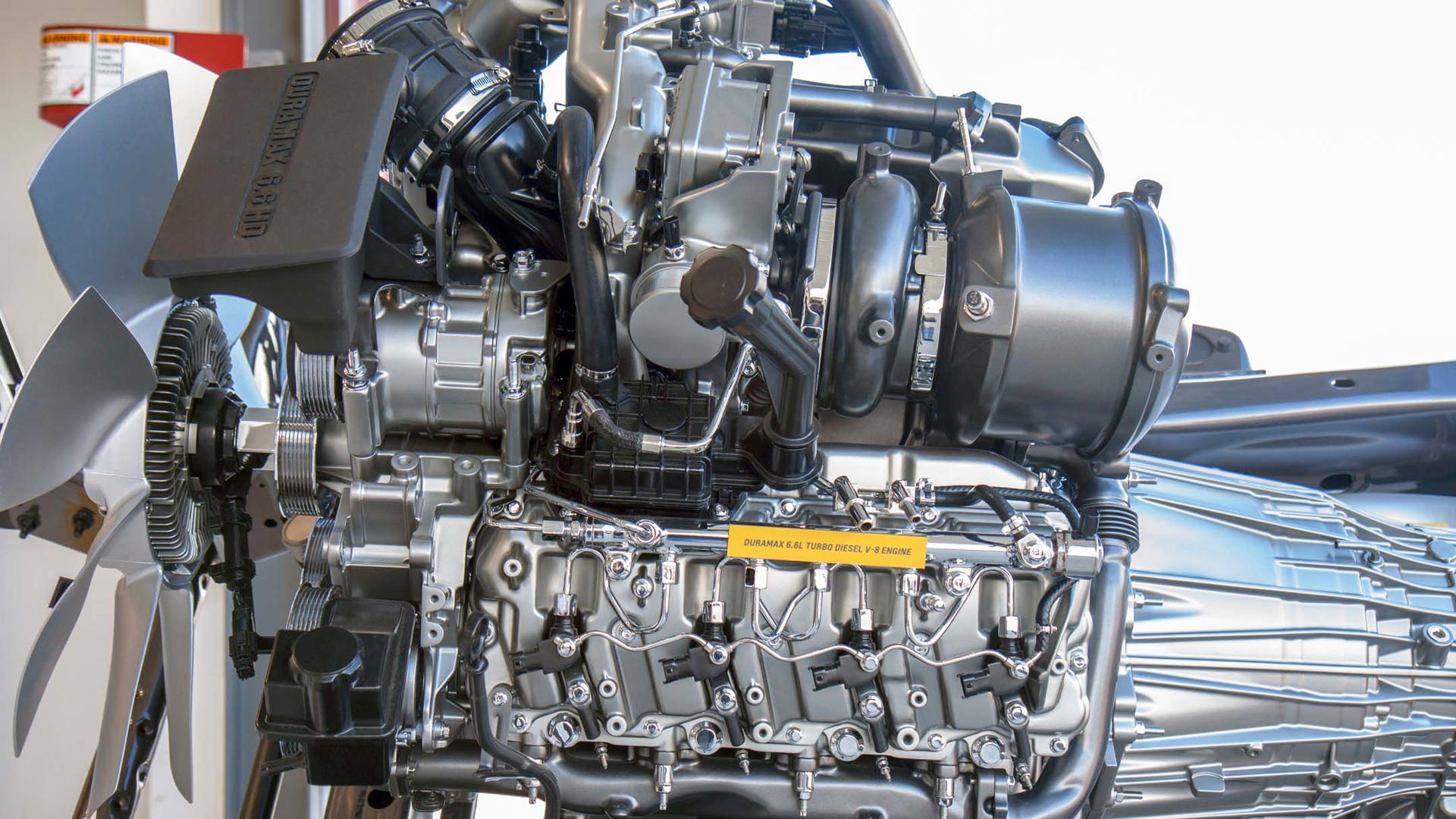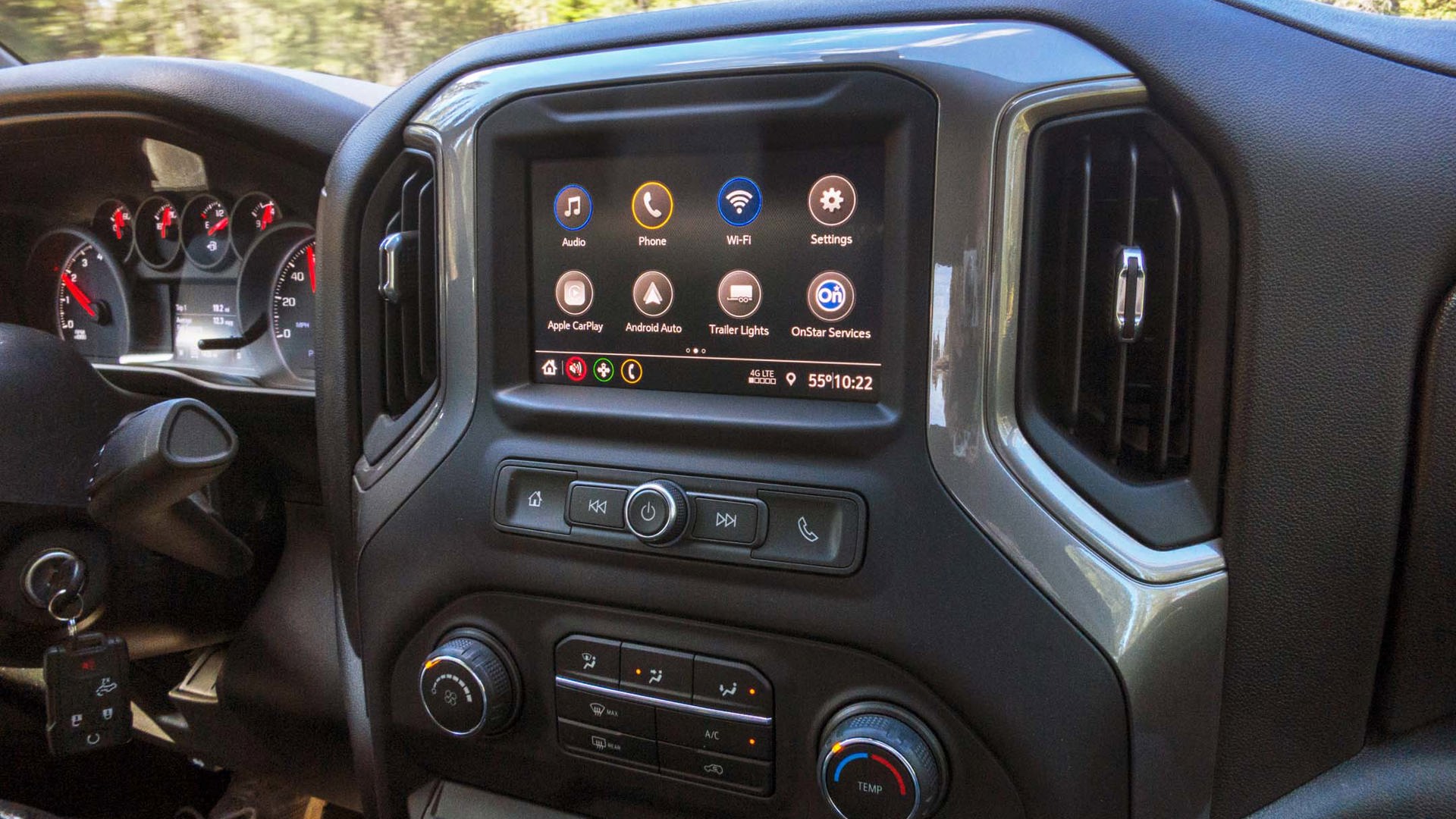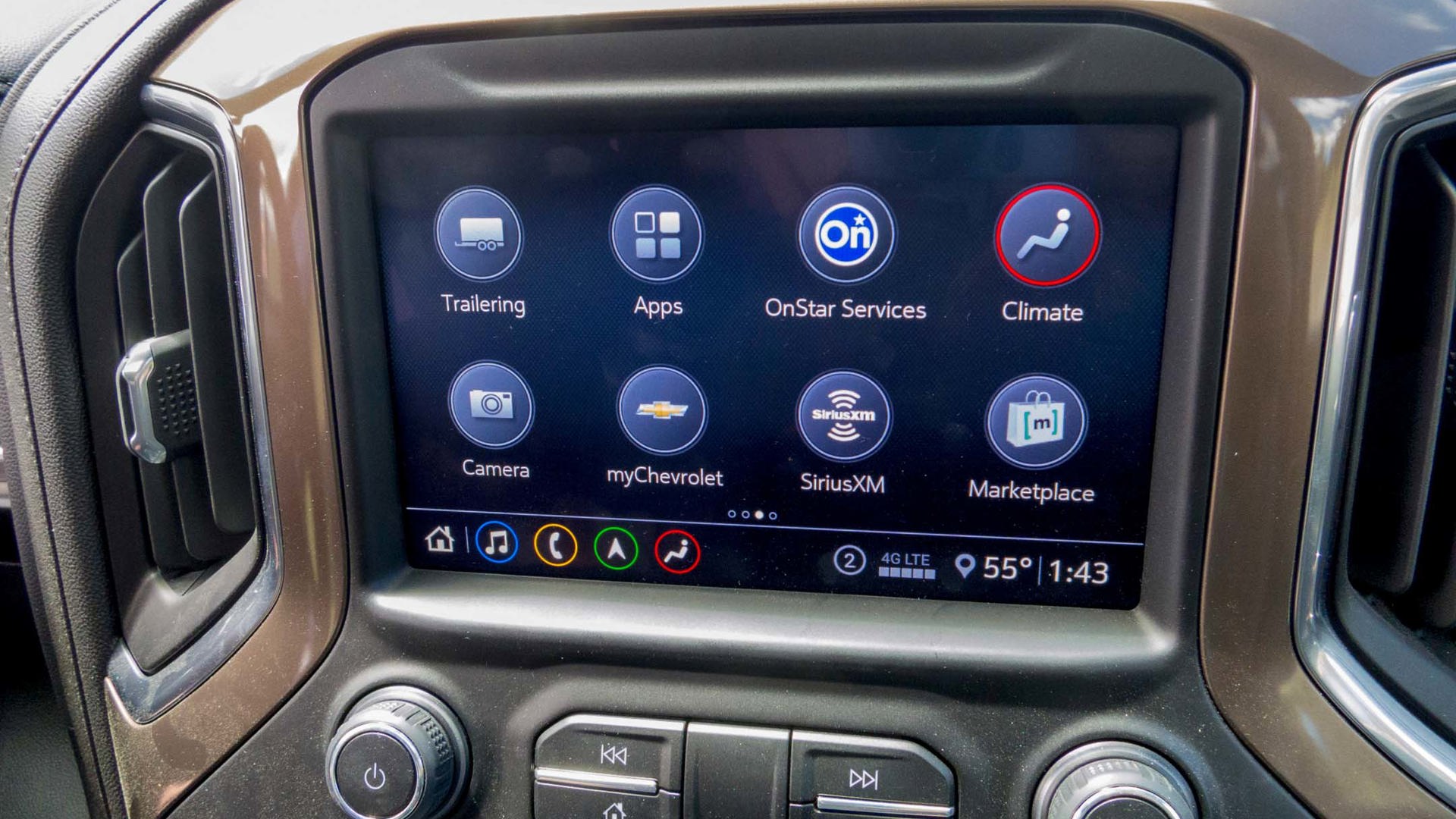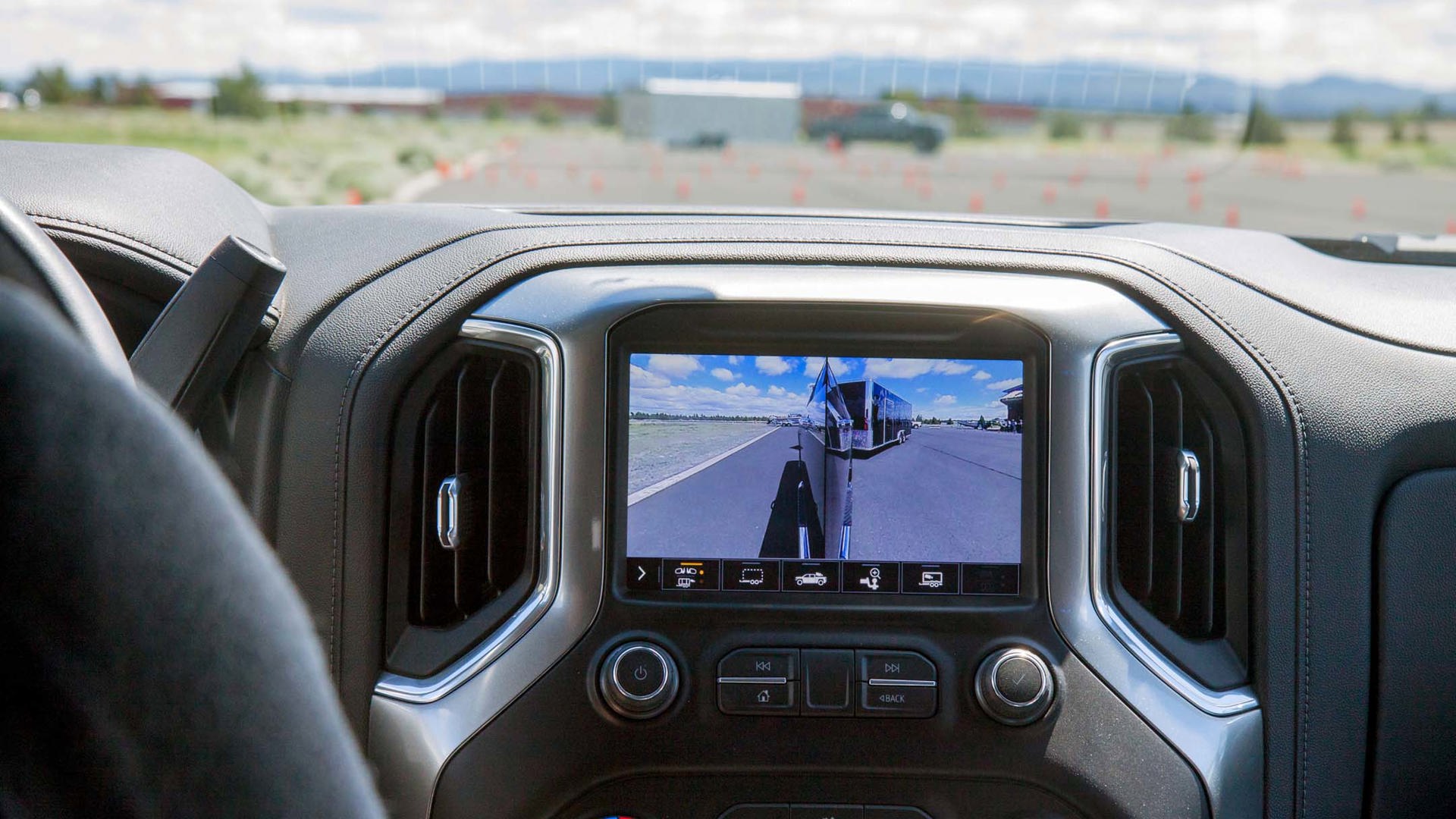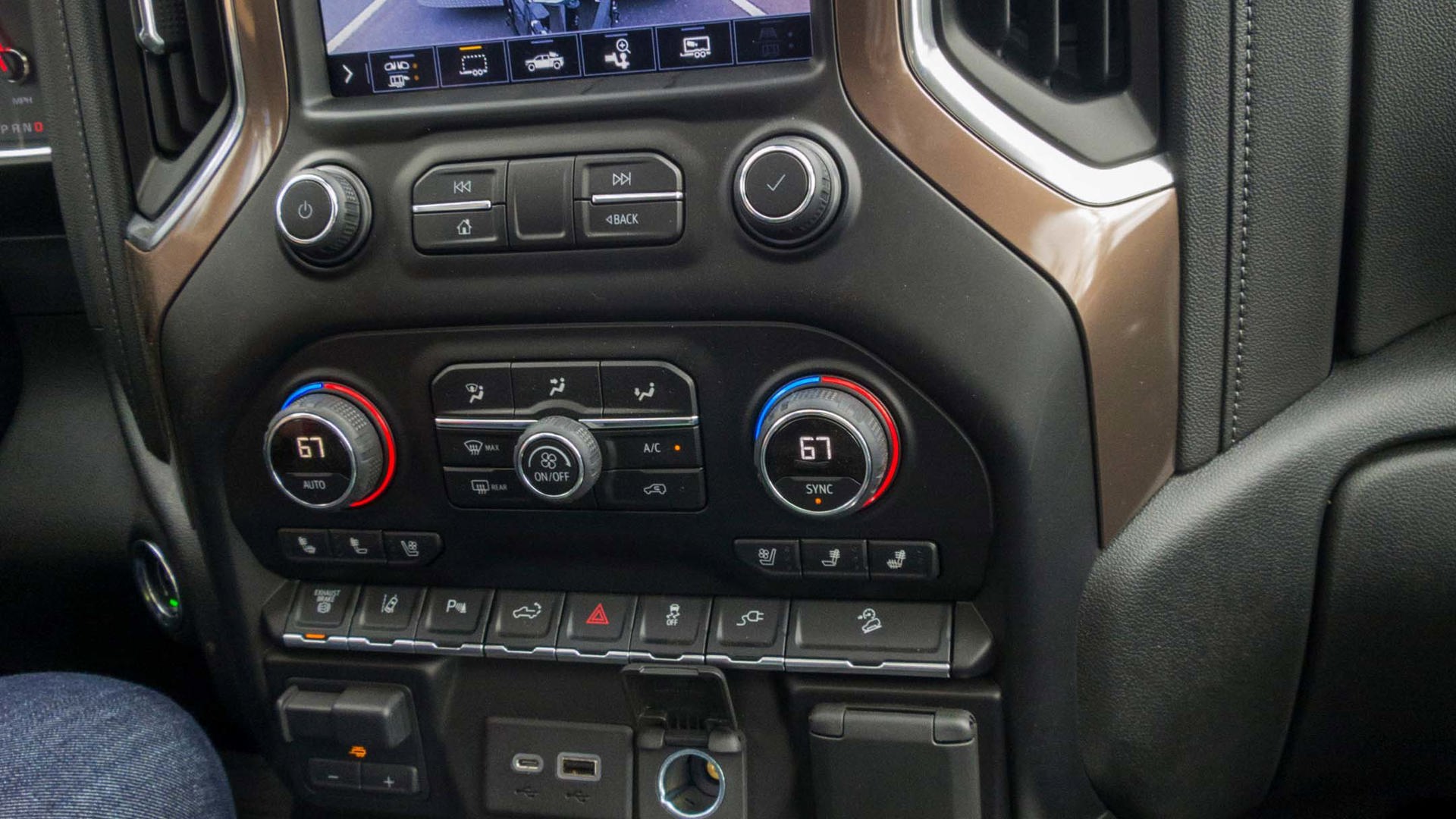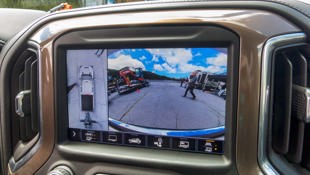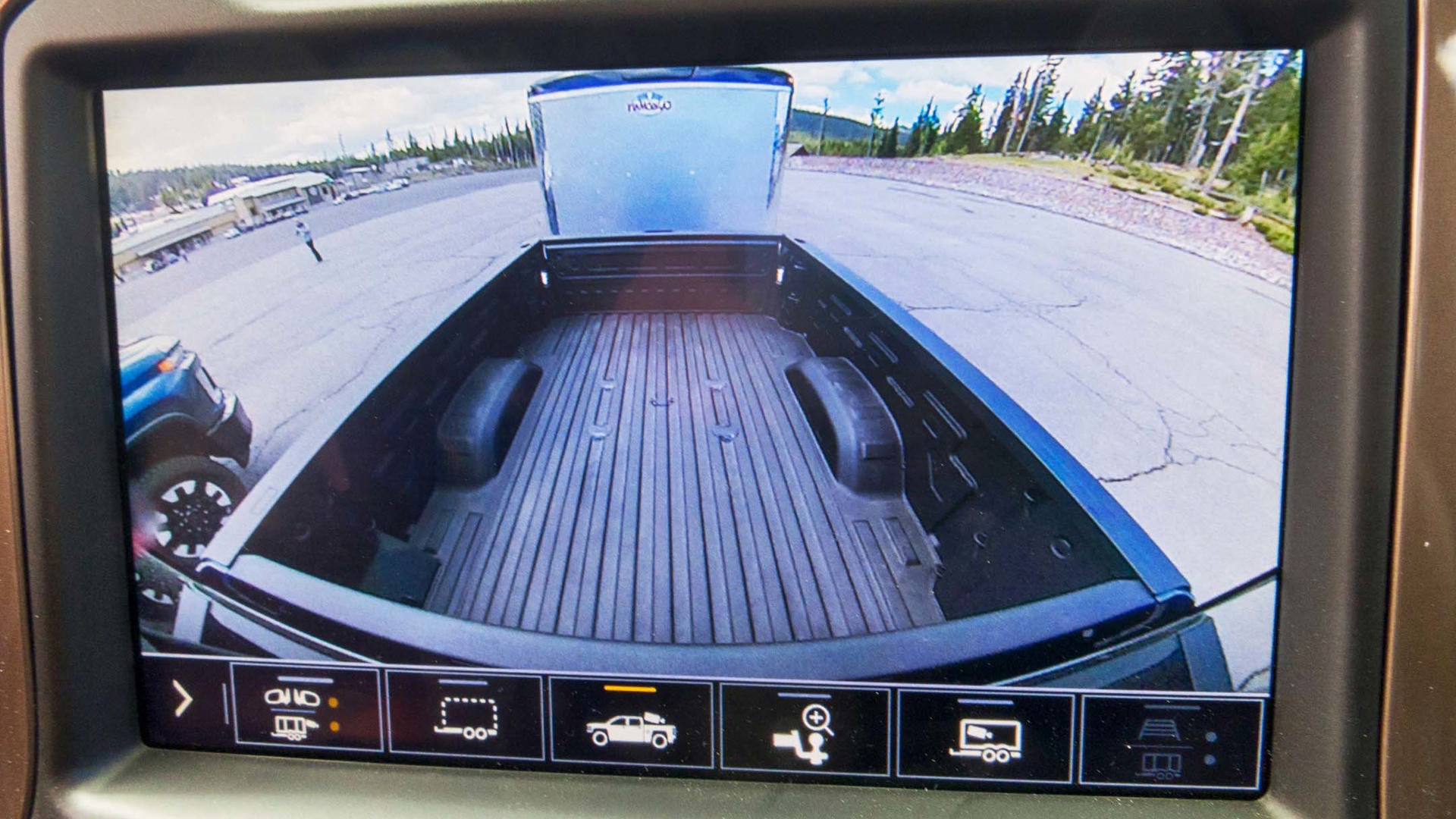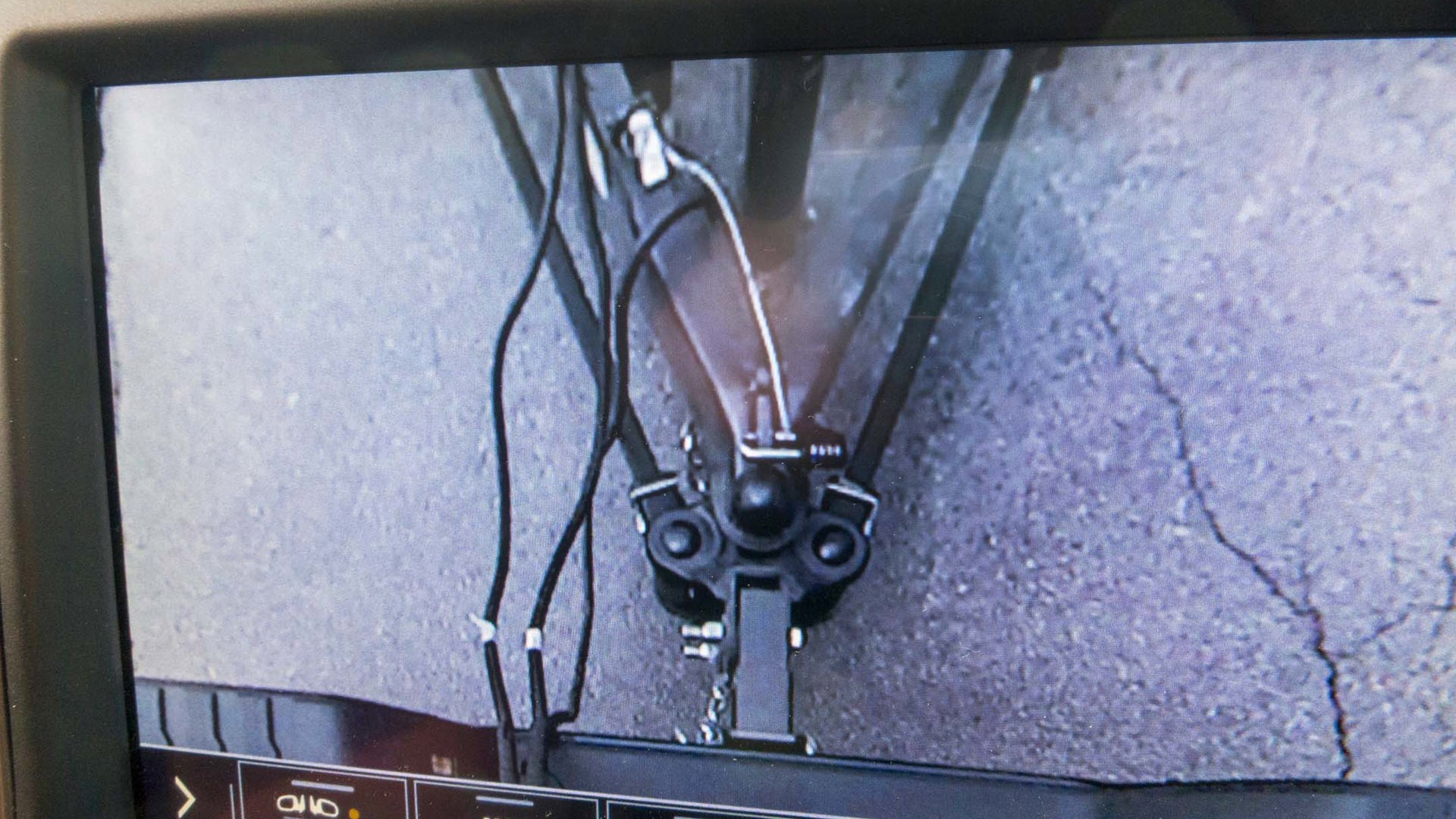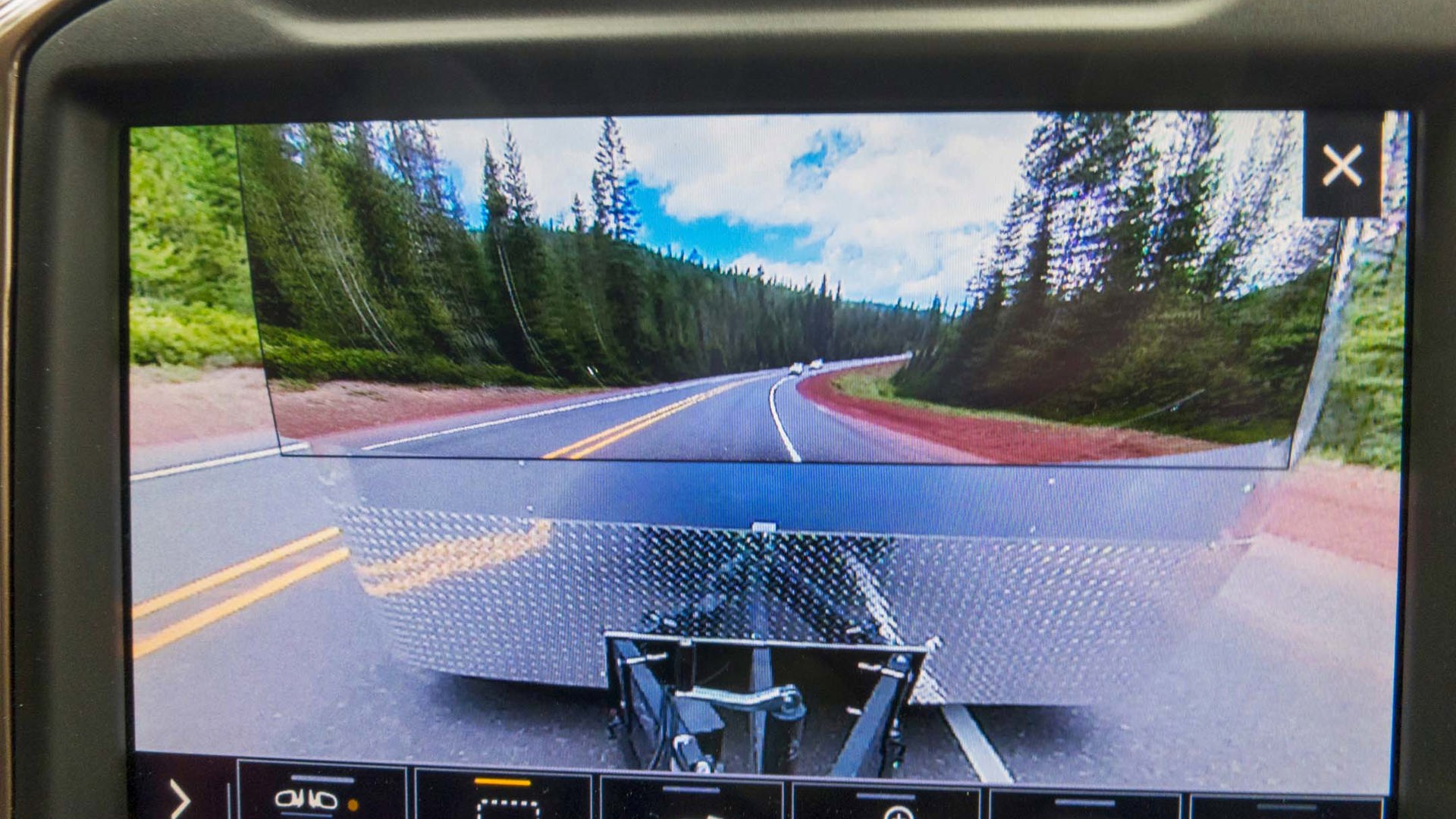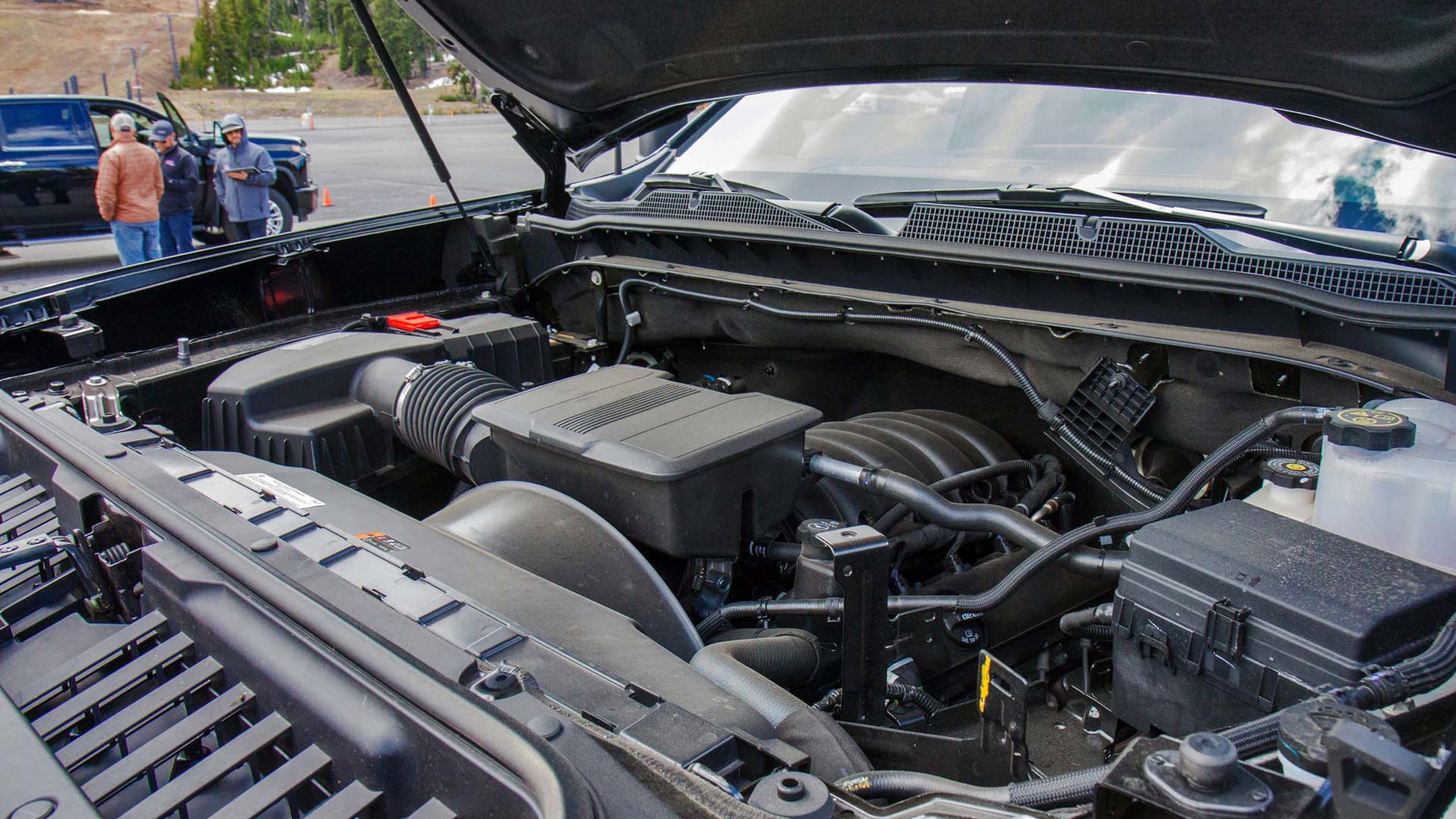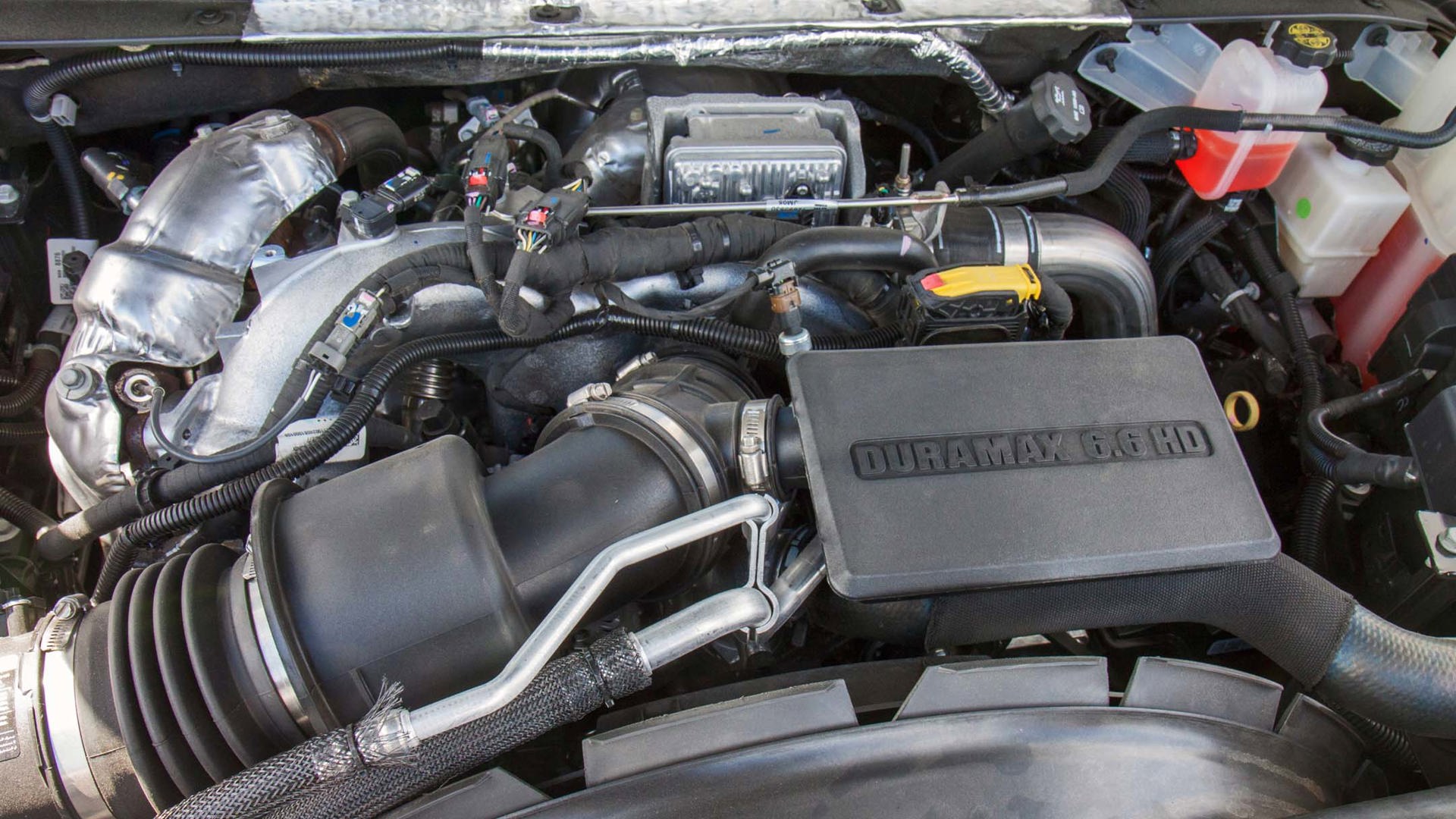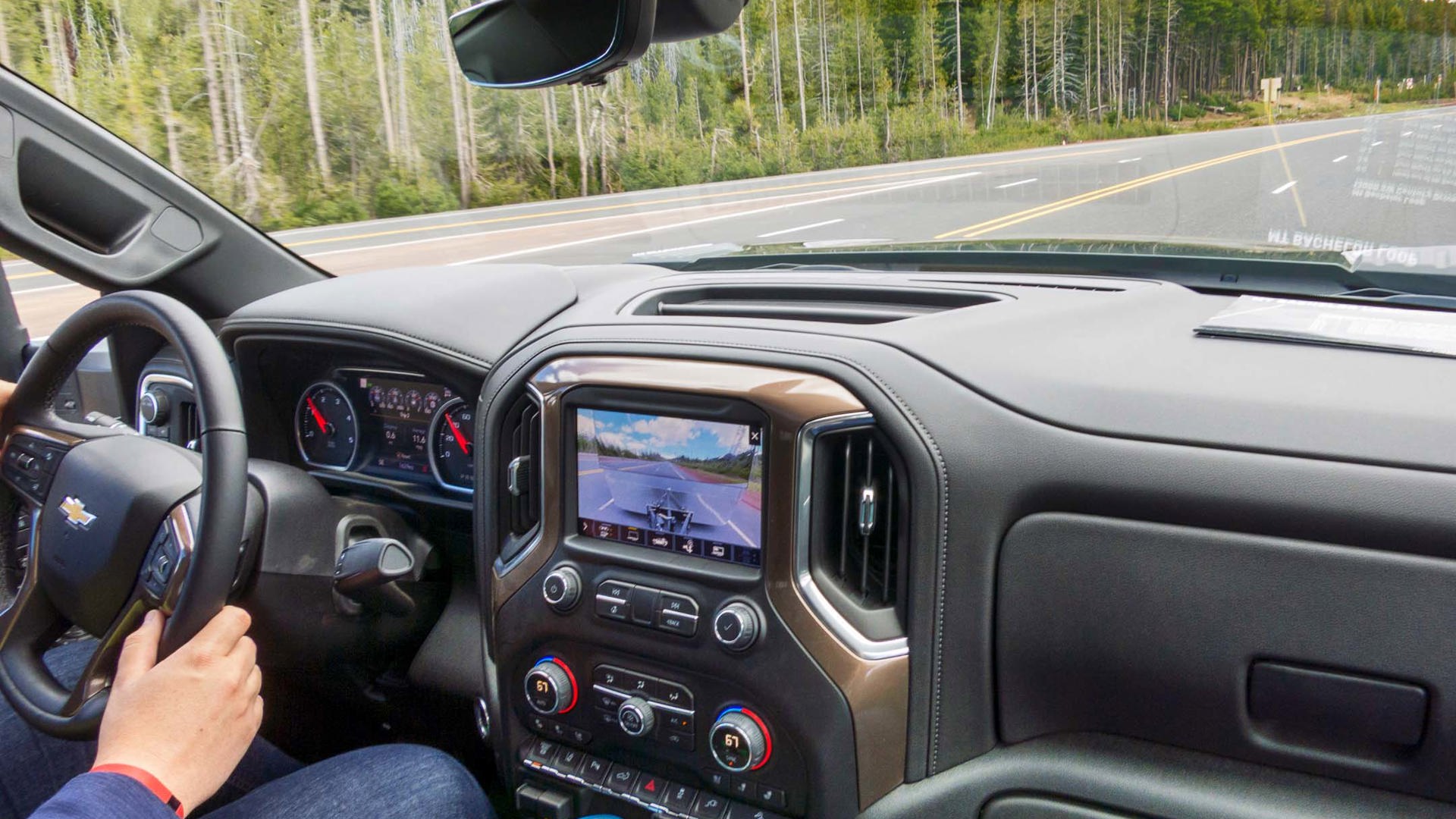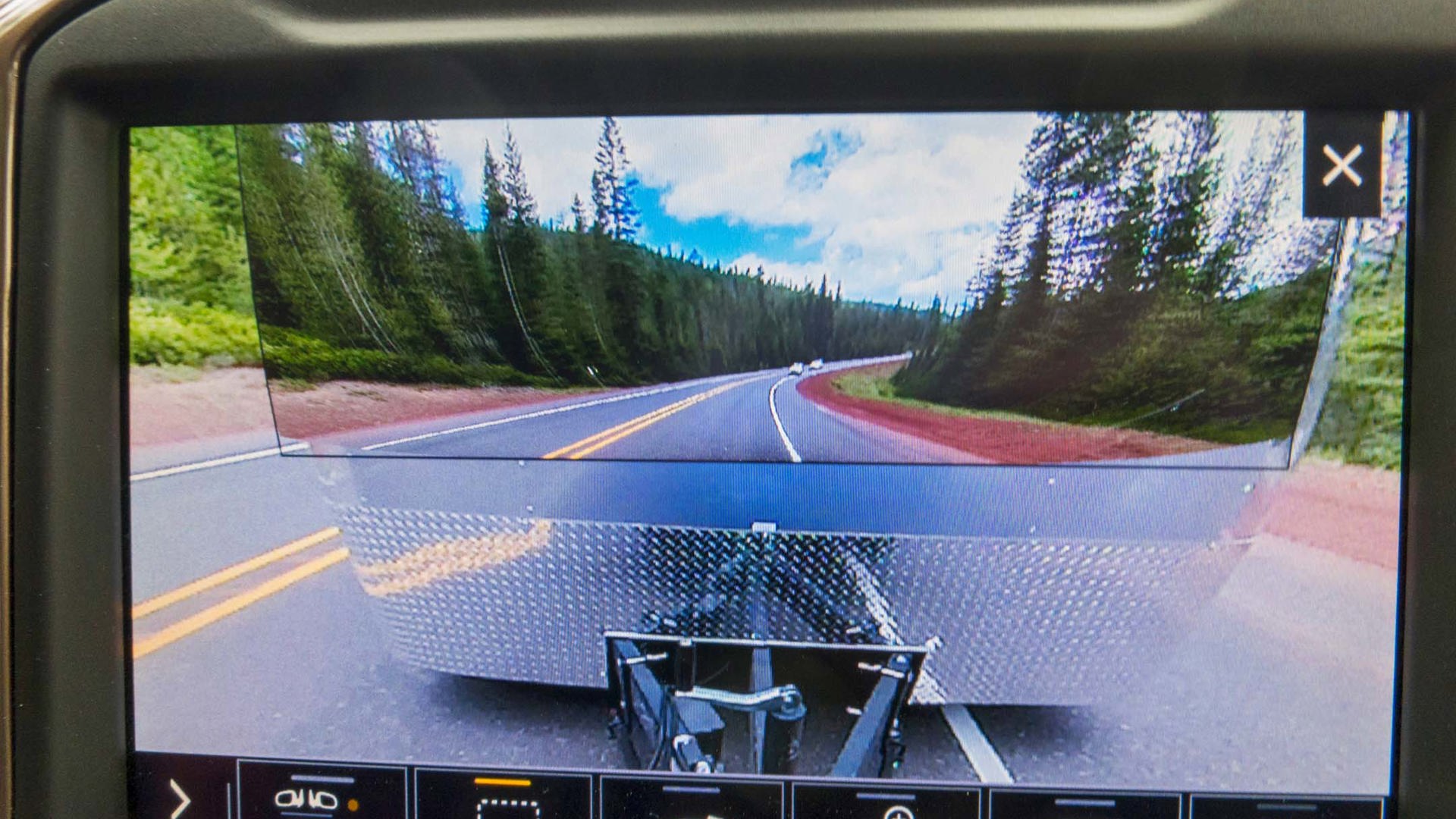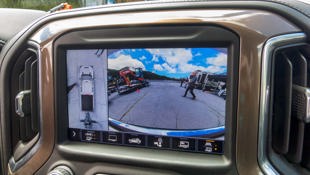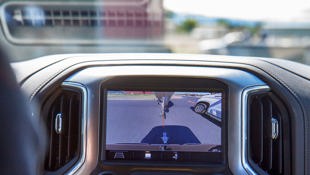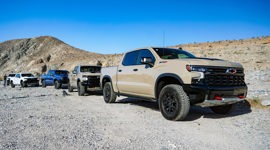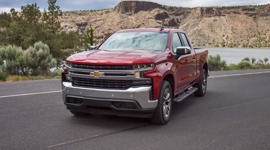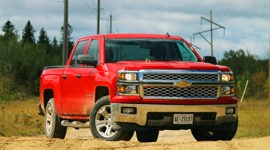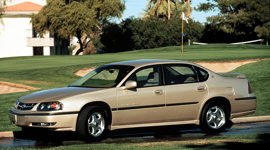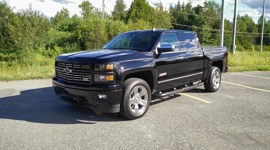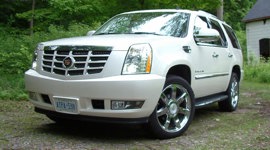BEND, Oregon – For over a decade, big trucks have been embroiled in back-and-forth one-upmanship, a rivalry measured in torque and tow (and sales) numbers. The battle’s mainly been waged between Ford and Ram, with one throwing down the gauntlet only to have the other pip it. For the most part, Chevy’s been content to watch from the sidelines – but the new 2020 Silverado Heavy Duty is their way of saying “Hold my beer.”
Chevrolet engineers credit much of the truck’s stump-pulling power to the transmission’s ability to use all available torque: “There’s no sense in having 1,000 lb-ft if you’re not using it all.”
Ram may still top the torque leader board with their 1,000 lb-ft, but the new Silverado HD boasts a 35,500 lb max tow rating to the Ram’s 35,100 lb – making it the new top dog of towing.
Kudos to the GM marketing whiz who came up with the max-towing display schtick: a two-storey, bow-tie-emblazoned anvil bolted to a flatbed, and hitched to a 3500 Silverado dually. Despite feeling utterly ridiculous, I’m nonetheless impressed with how easily the gigantic prop is set rolling, though there’s a fair bit of shuddering when I’m applying the brakes.
That 35,500 lb figure represents a massive 52 percent jump in towing capacity over the outgoing Silverado HD, and max payload increases to 7,466 lb. Aside from the optional new Duramax 6.6L turbo-diesel producing 445 hp and 910 lb-ft, hooked to a segment-first 10-speed Allison transmission, the new truck benefits from a new beefed-up ladder frame, U-joints and axles. Every component is new and HD specific.
The standard engine choice is a 6.6L gasoline engine that puts out 401 hp and 464 lb-ft mated to a six-speed automatic. With this configuration, the Silverado HD can tow up to 17,400 lb – an 18 percent improvement over the previous V8. The final rear axle gear ratio for all 10-speed Duramax equipped HD Silverado is 3.42:1, and 3:73 in the 6-speed gasoline V8 variants, due to the difference in transmission gearing.
The two available engines are limited to the Heavy Duty trucks – meaning you can’t get them in the Silverado 1500. In fact, the only thing the two trucks share is the roof’s sheet metal. Four inches taller, the HD towers over the 1500, and it’s longer and wider than the truck it replaces. Rear passengers in Crew Cab models gain an extra three inches of leg space.
Heavy-duty trucks are one of the last bastions of unbridled machismo – not only do the trucks have to perform; they’ve gotta look the part too. The Silverado HD is a nasty-looking brute; its flat, Mack-truck grille topped with a huge, functional air intake, and flanked by stacked headlights that emphasize vertical mass.
But handsome is as handsome does – when the Duramax-powered 2500 effortlessly tows a 14,000 lb trailer around the Cascade mountain foothills, it’s a beautiful thing indeed. The truck has to work harder at towing 12,000 lb with the 6.6L gasoline V8, the six-speed holding gears longer to access peak torque at 4,500 rpm. But just like the diesel, the V8’s tow/haul mode keeps deceleration steady and saves brake wear and tear, by using engine braking while coasting downhill. By comparison, the diesel’s torque is more readily available thanks to the Allison transmission’s ten gears. Even at 7,500 ft altitude, the turbo-diesel’s response is immediate, accessing peak torque around 3,500 rpm over the same route. There’s no hunting for gears.
Chevrolet engineers credit much of the truck’s stump-pulling power to the transmission’s ability to use all available torque: “There’s no sense in having 1,000 lb-ft if you’re not using it all,” was how one of them put it. All of that torque is available in first gear, and Chevy boasts that their 7.4 second 0–100 km/h time is best-in-class.
On the road, there’s no getting over the feeling that this is a huge vehicle, although it handles well without the typical bouncing and squirming when unladen. Although it doesn’t compare to the Ram with its optional air suspension, the new HD is far more refined than heavy-duty trucks of old. It’s more composed when towing, which has been made much easier thanks to the available Advanced Trailering System – a suite of eight cameras providing up to 15 different views of truck and trailer.
There’s a bit of a learning curve to master the bank of switchgear controlling each view, but once familiar it’s simply brilliant. Put on the turn signal and the side of the trailer appears on the display screen – no more clipping mailboxes or dropping a wheel in the ditch. Want to check how your cargo is doing? Press a button and a camera gives you a clear view inside the trailer – a boon for horse owners. Perhaps the slickest trick of all is the “transparent trailer” view, which uses various cameras to simulate looking through the trailer, giving you an unobstructed and stress-free view of what’s behind. The Trailer app can run through a lighting diagnostic without needing a second set of eyes, store individual trailer profiles and deliver maintenance alerts, monitor trailer tire pressure and temperature, and will trigger an alarm if the trailer is disconnected while the truck is parked and locked.
Folks of modest stature (like me) will appreciate the larger steps at the bed’s corners, but I had to climb on one of the front tow hooks to close the massive hood.
Ford and Ram’s interiors have really laid on the swank lately, with a slathering of leather and genuine wood trim. I’m a big fan of the branded and barbed-wire motif of Ram’s Laramie Longhorn, an overt luxury that borders on camp. Big-truck buyers will have to weigh how much they value luxury over capability – especially when they can have both. Silverado may be on top performance-wise, but its cabin still lags far behind. The dash is a throwback to the last decade, and the plastic-housed display screen in even the top-spec $80,000 High Country looks minuscule compared to the Ram’s enormous tablet. The steering wheel in WT and LT trims doesn’t telescope, and cloth seats are flat and unyielding. Moving up to LTZ gives you a more comfortable, leather-cradled tush, telescoping wheel, and electric, variable weighted steering. For the first time there’s now available colour head-up display and adaptive cruise control.
Pricing has yet to be released – expect it to be available closer to the truck’s availability later this month. There are five unique trim levels: base W/T, representing 5 percent of all sales, should start at around $40,000; LT models represent 25 percent of buyers; Custom models 10 percent; the chrome-laden LTZ 40 percent; High Country, the range-topping “status truck” of the lineup, should price between $80–90,000 and account for 20% percent of sales.
